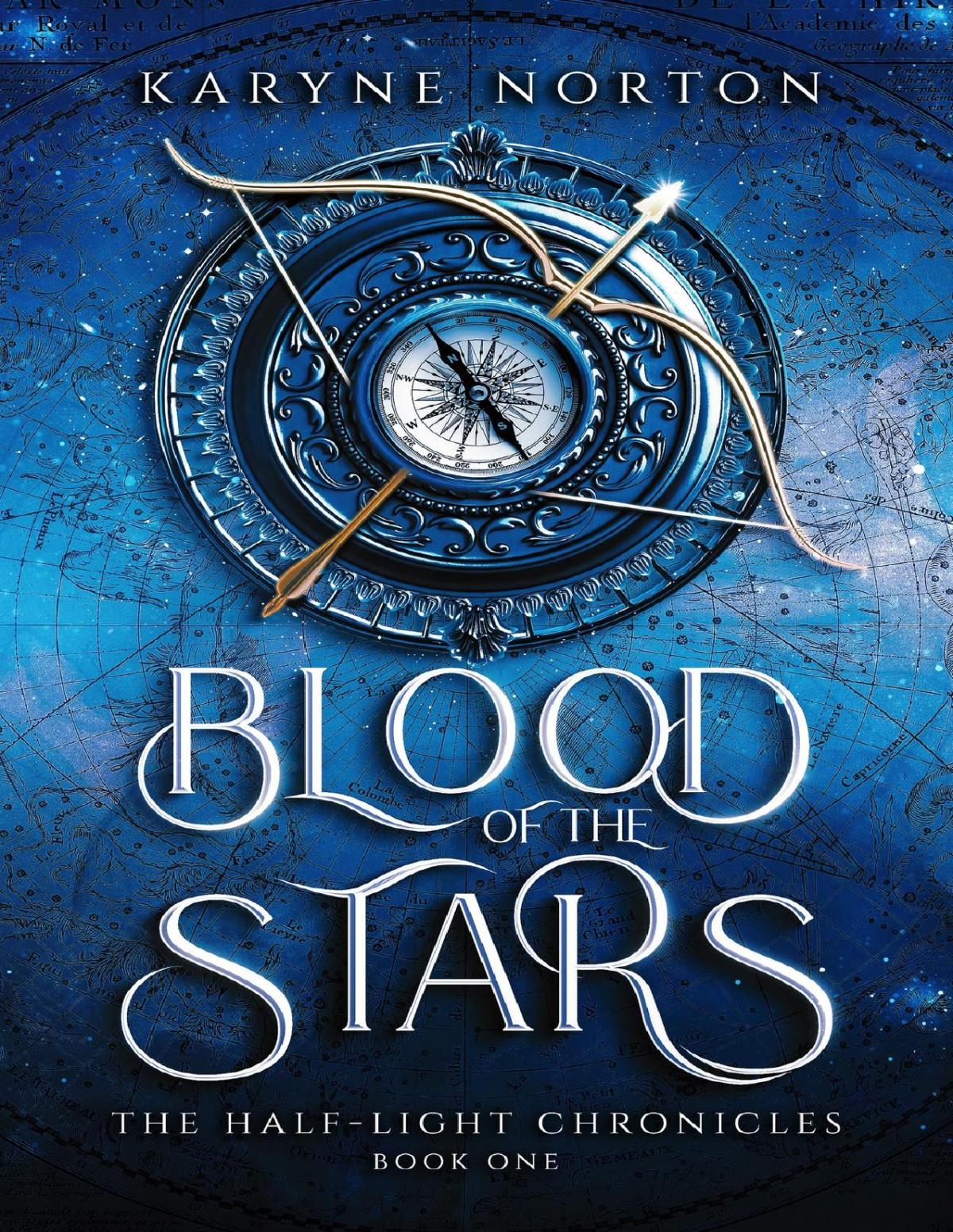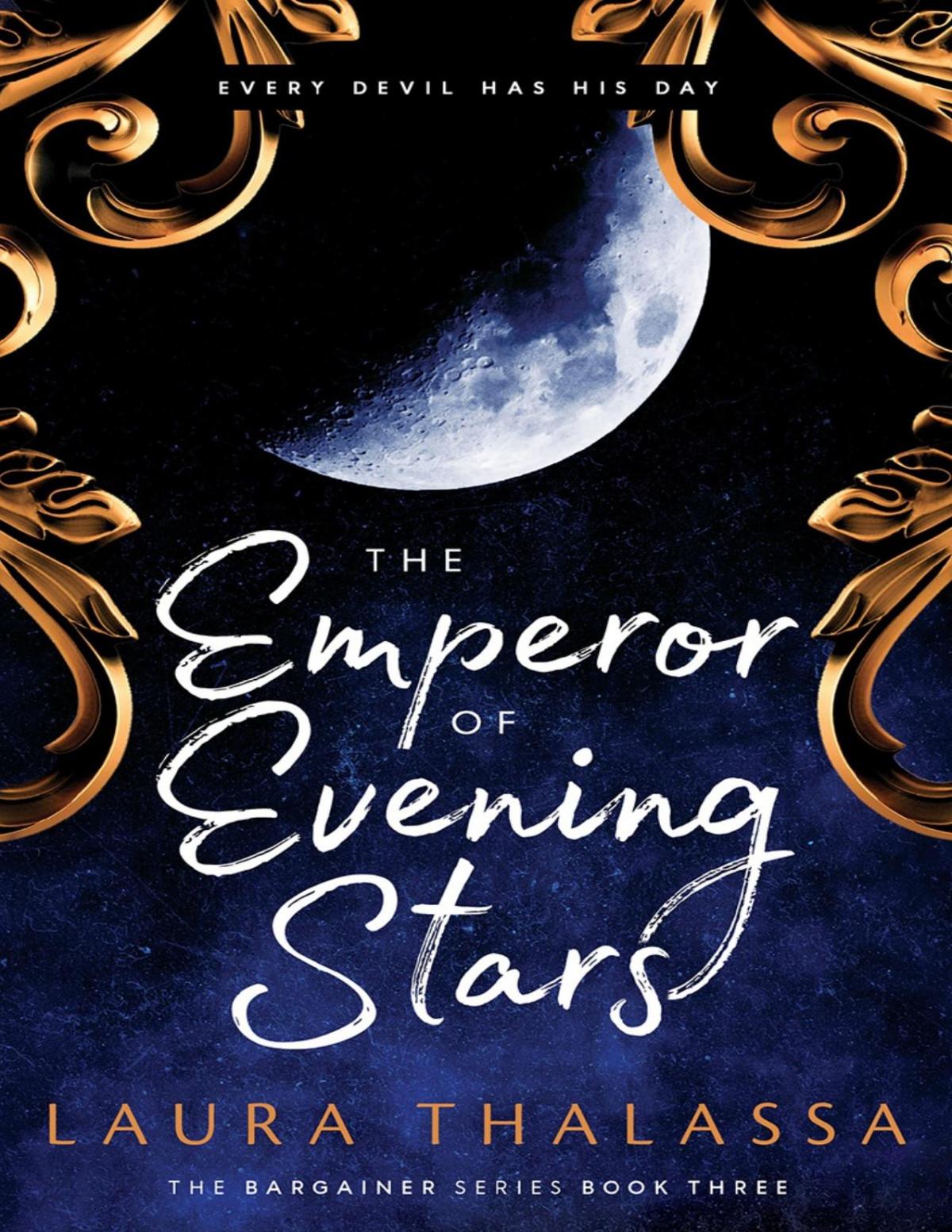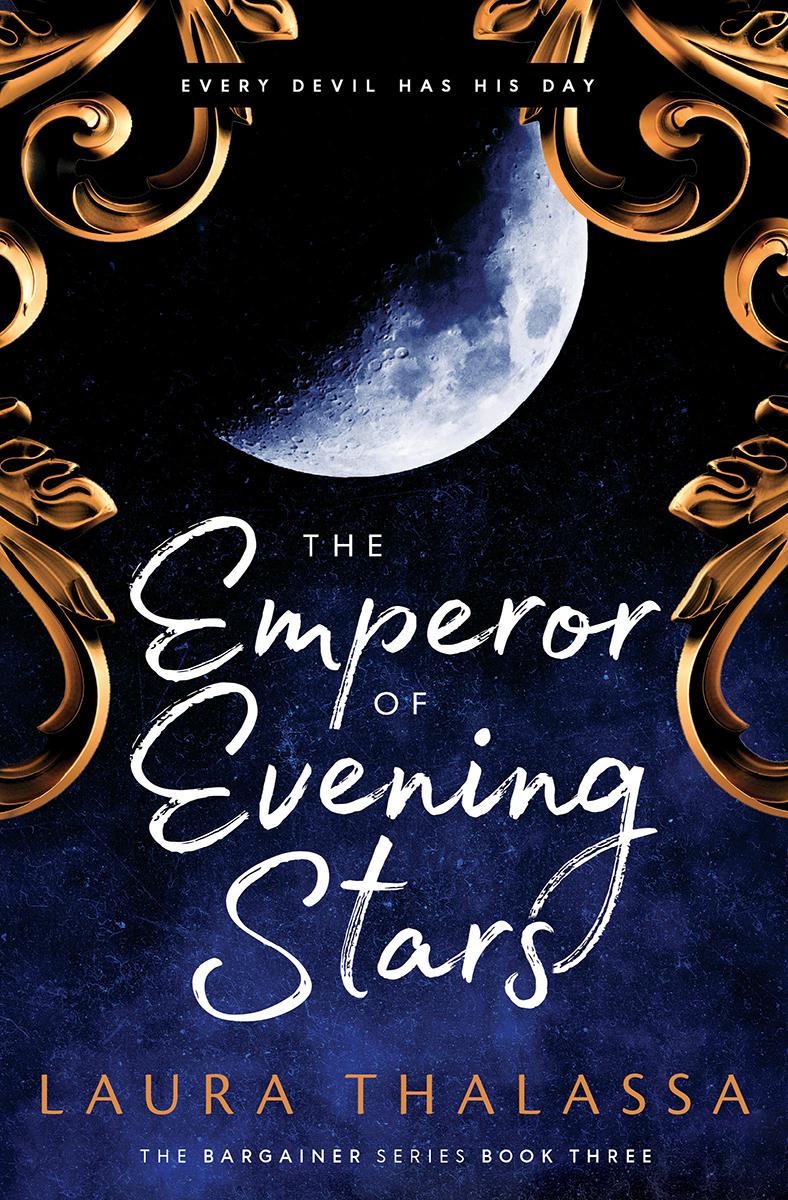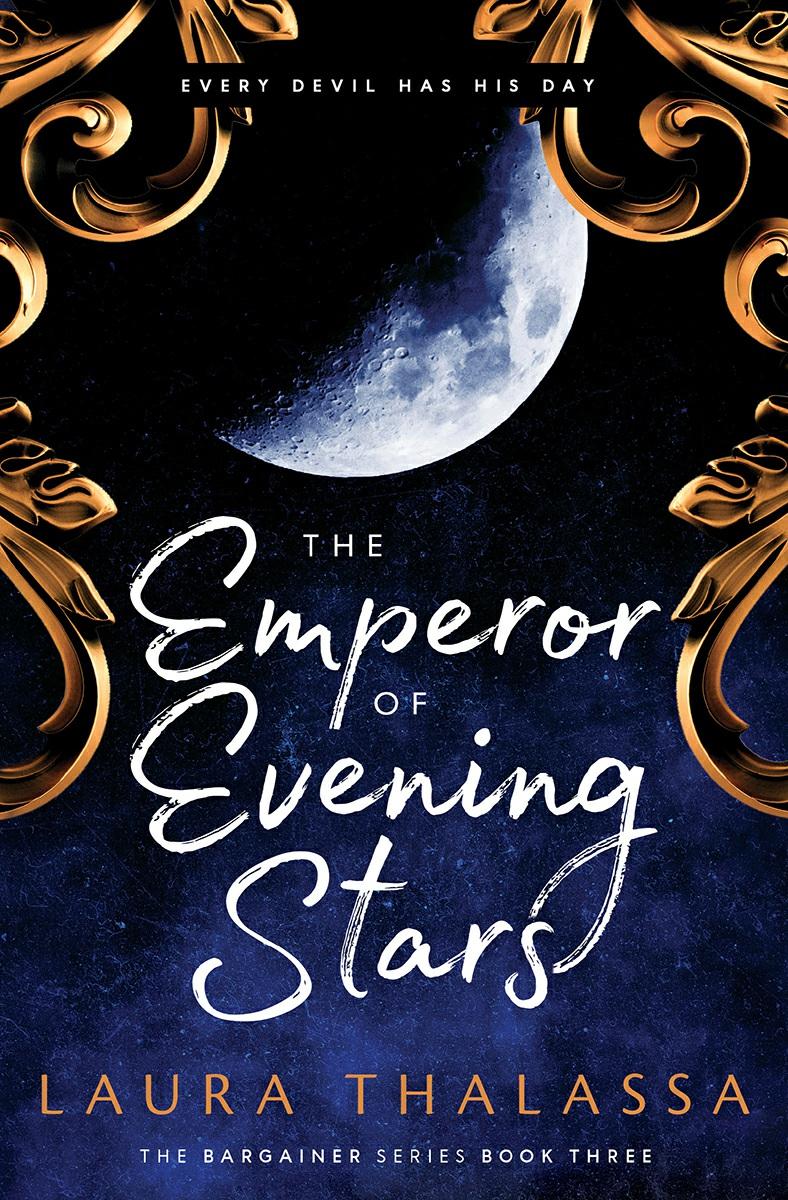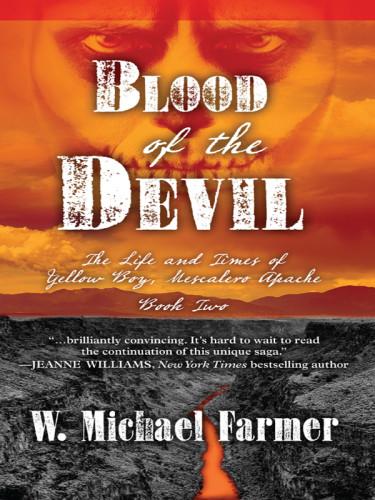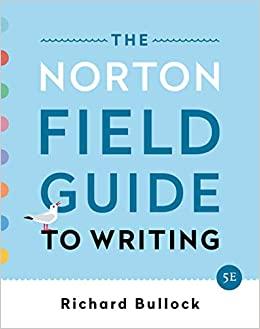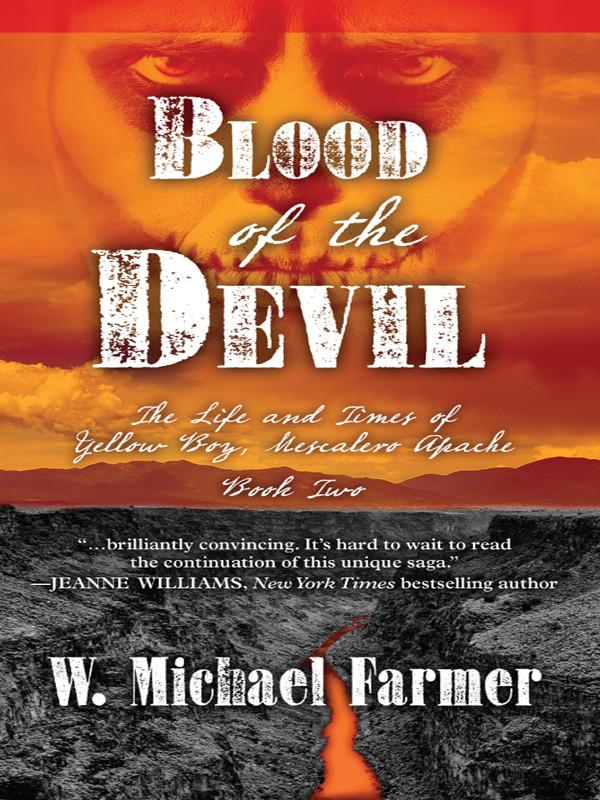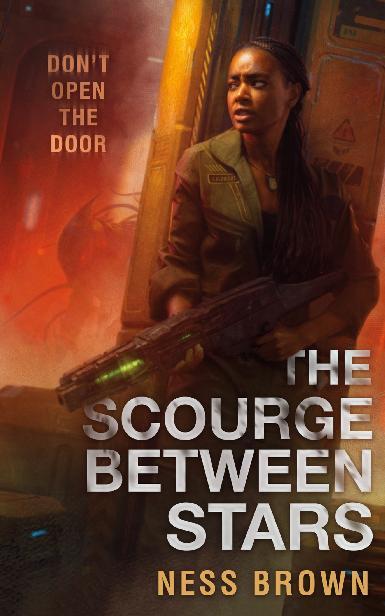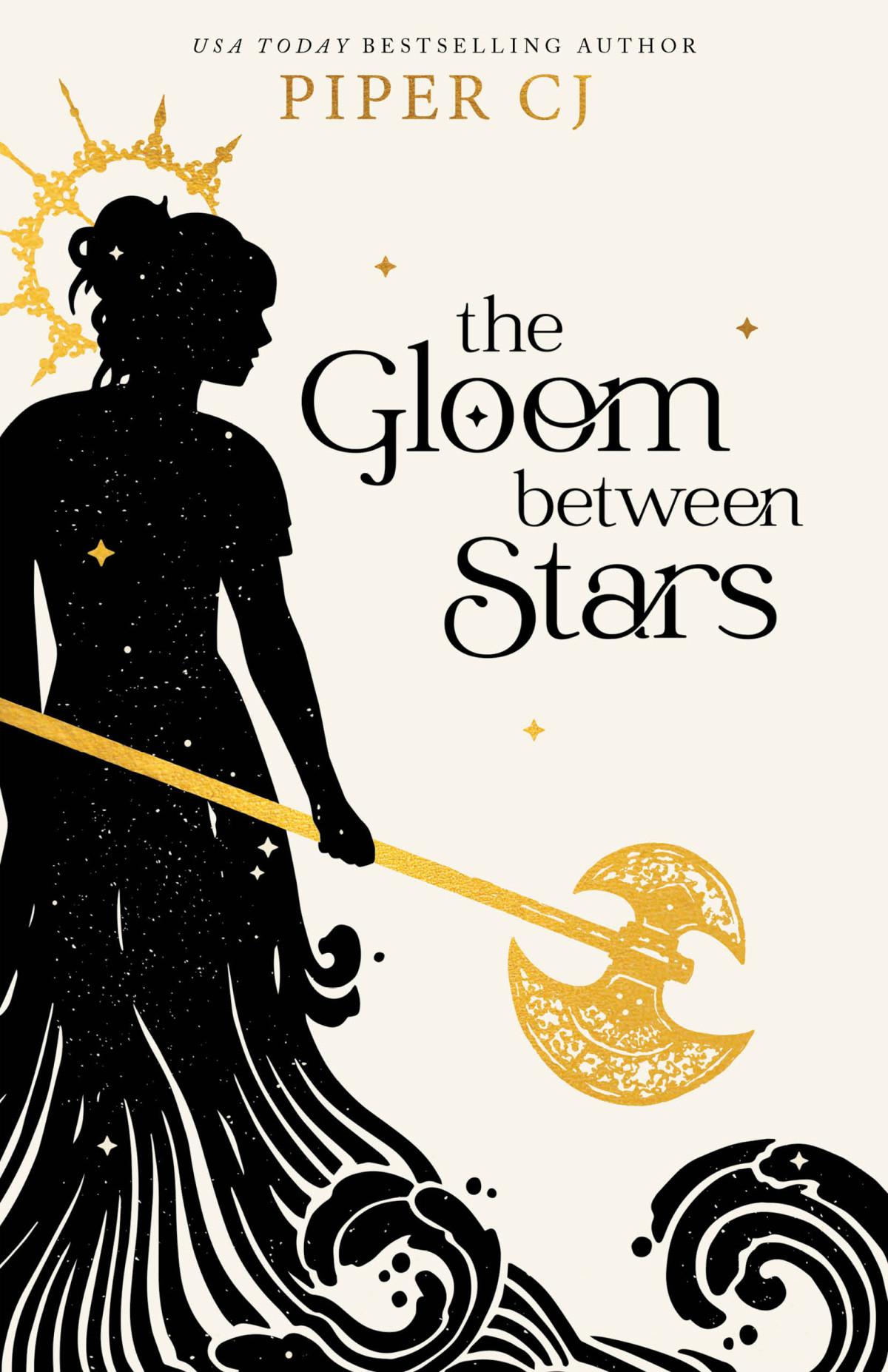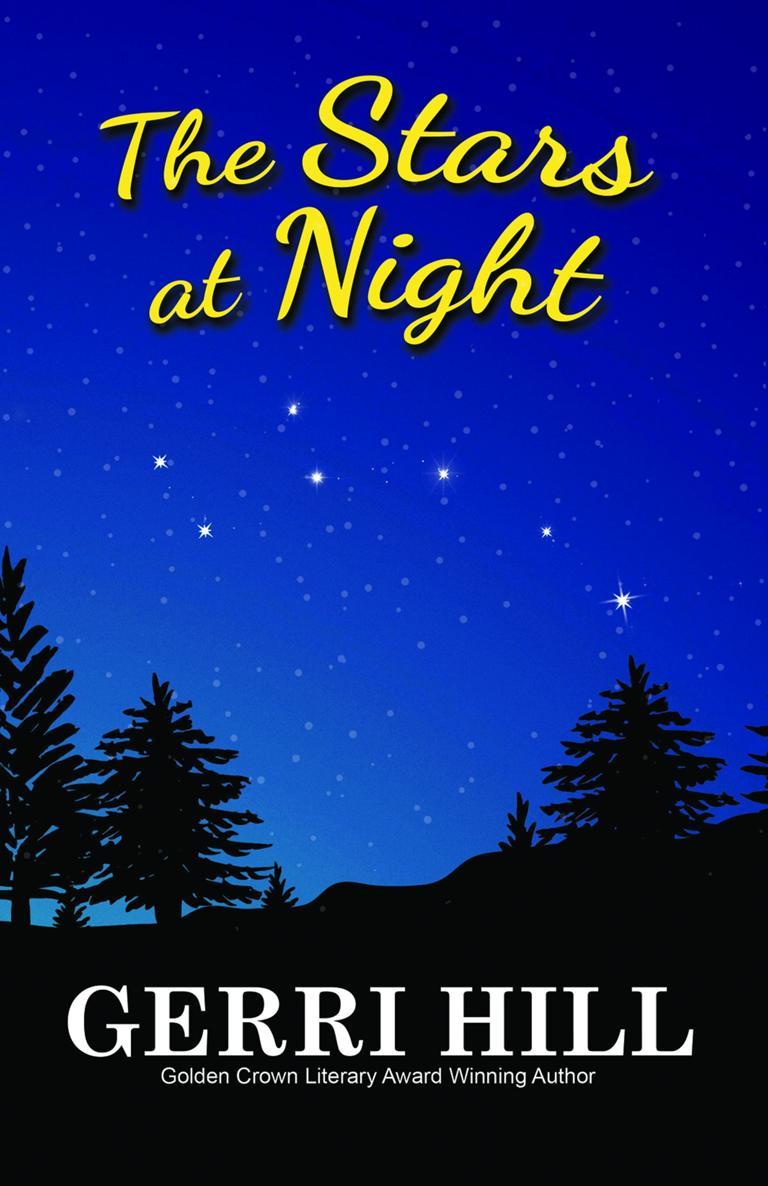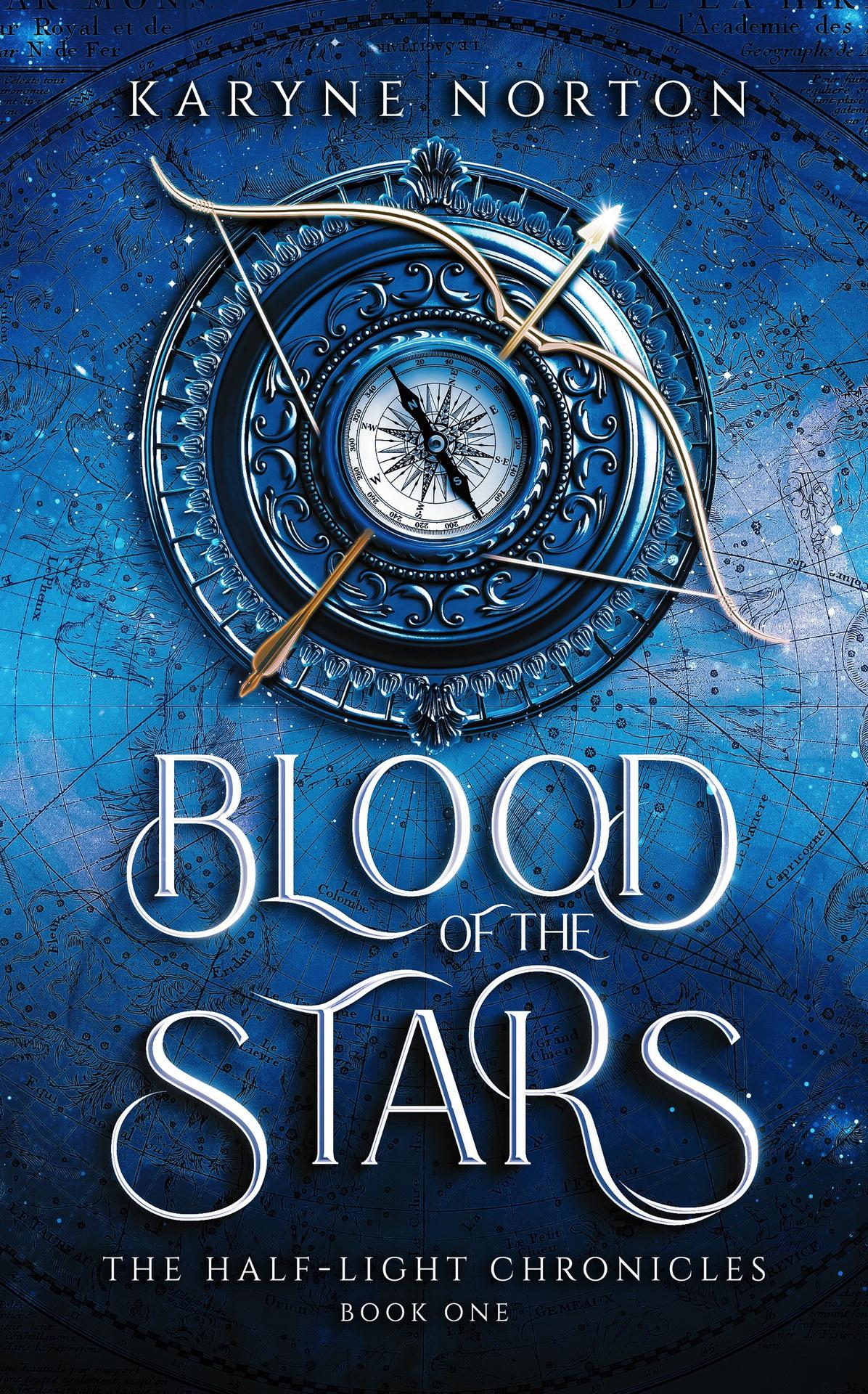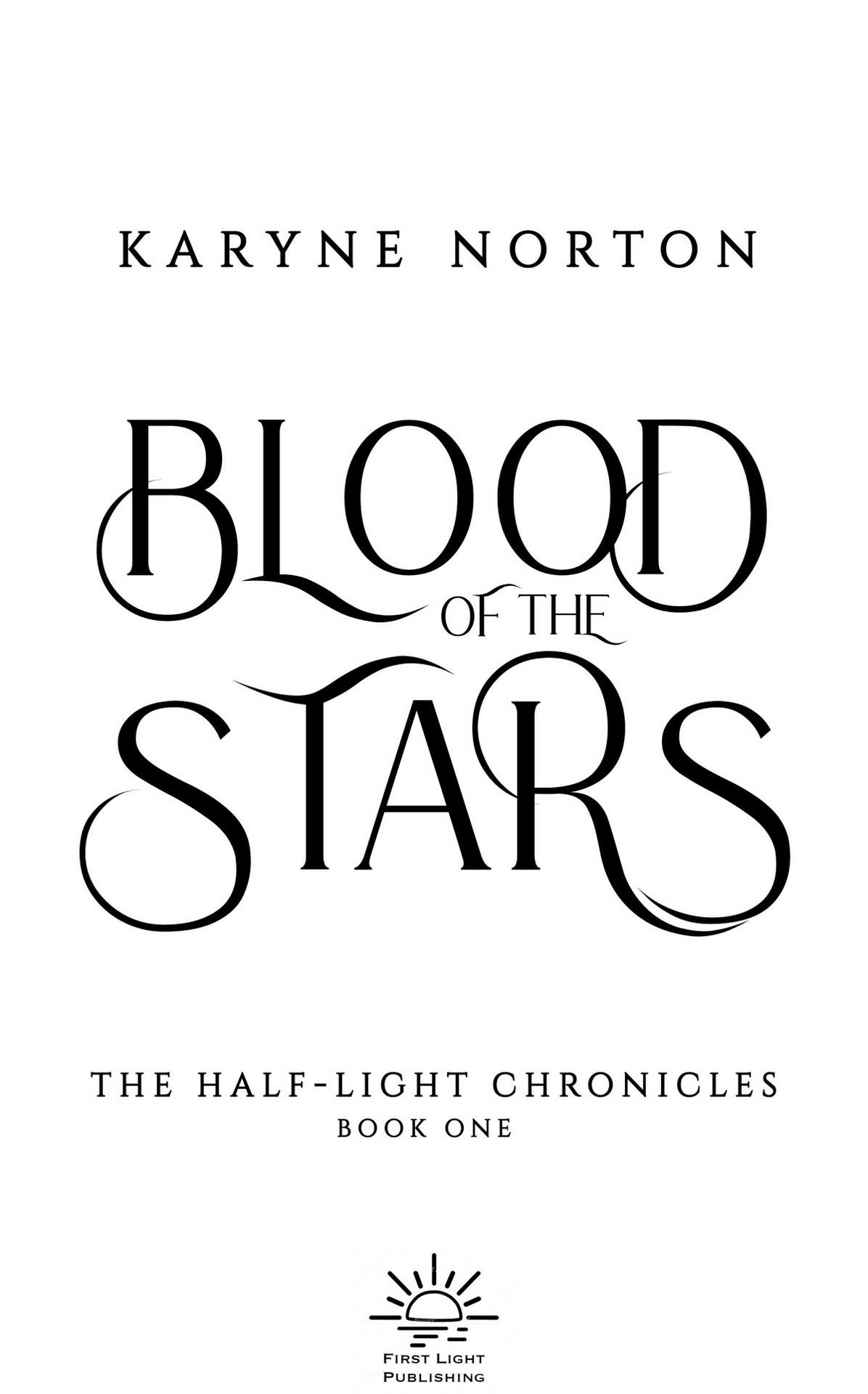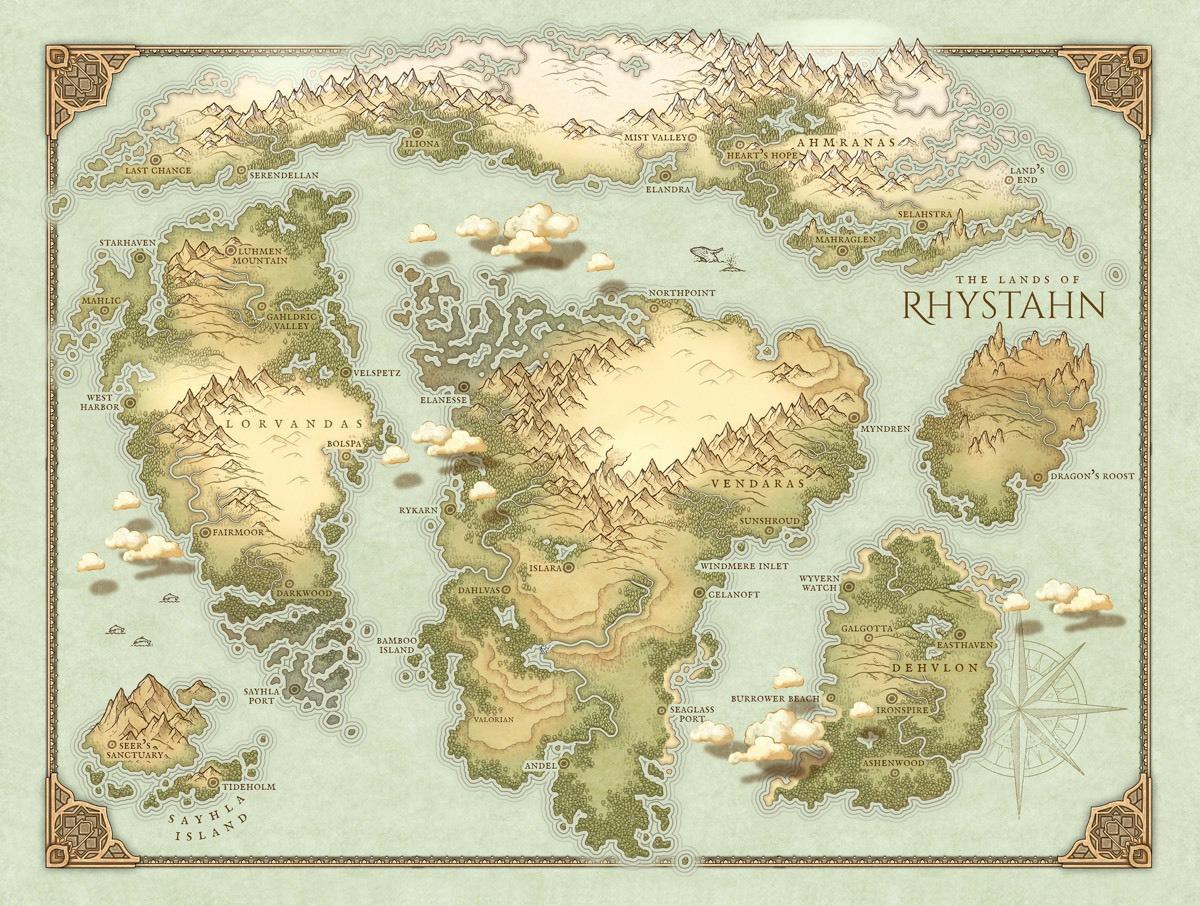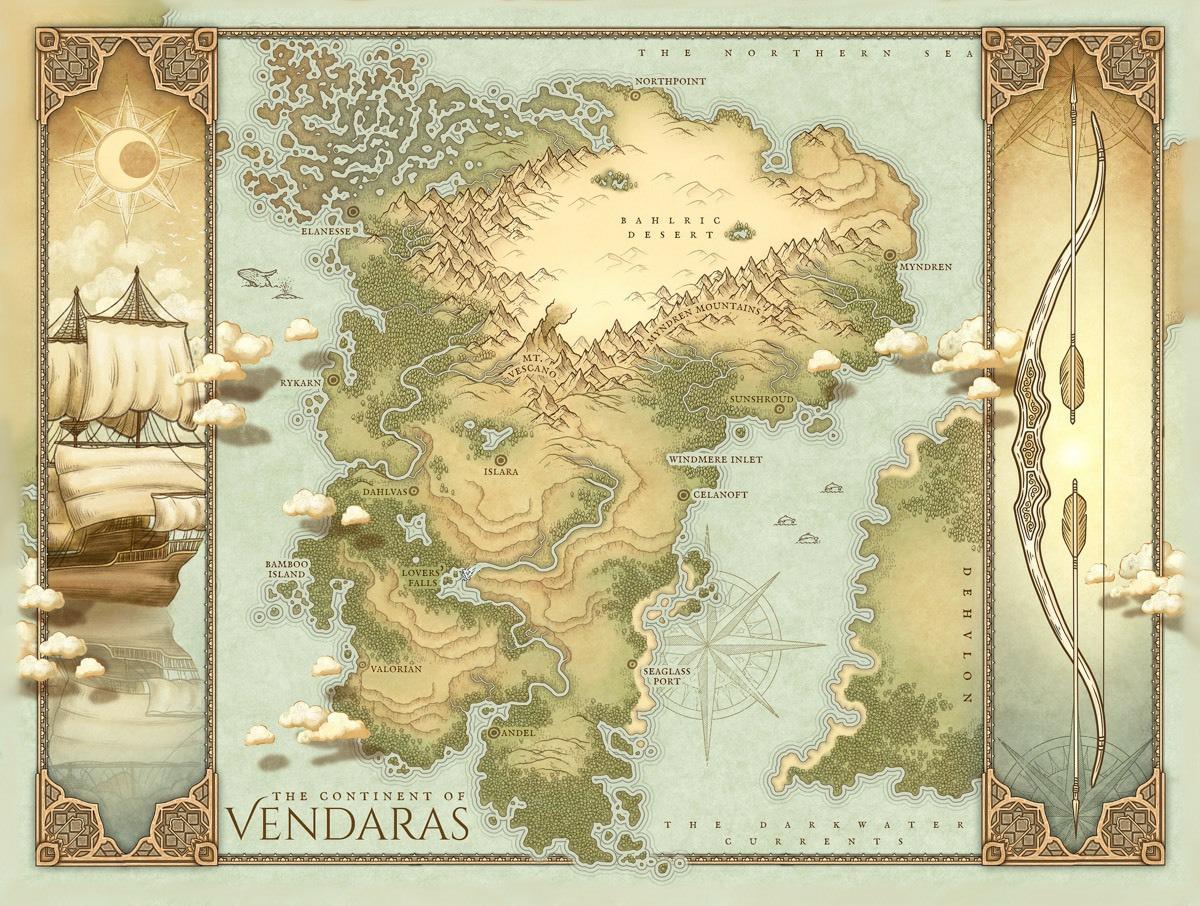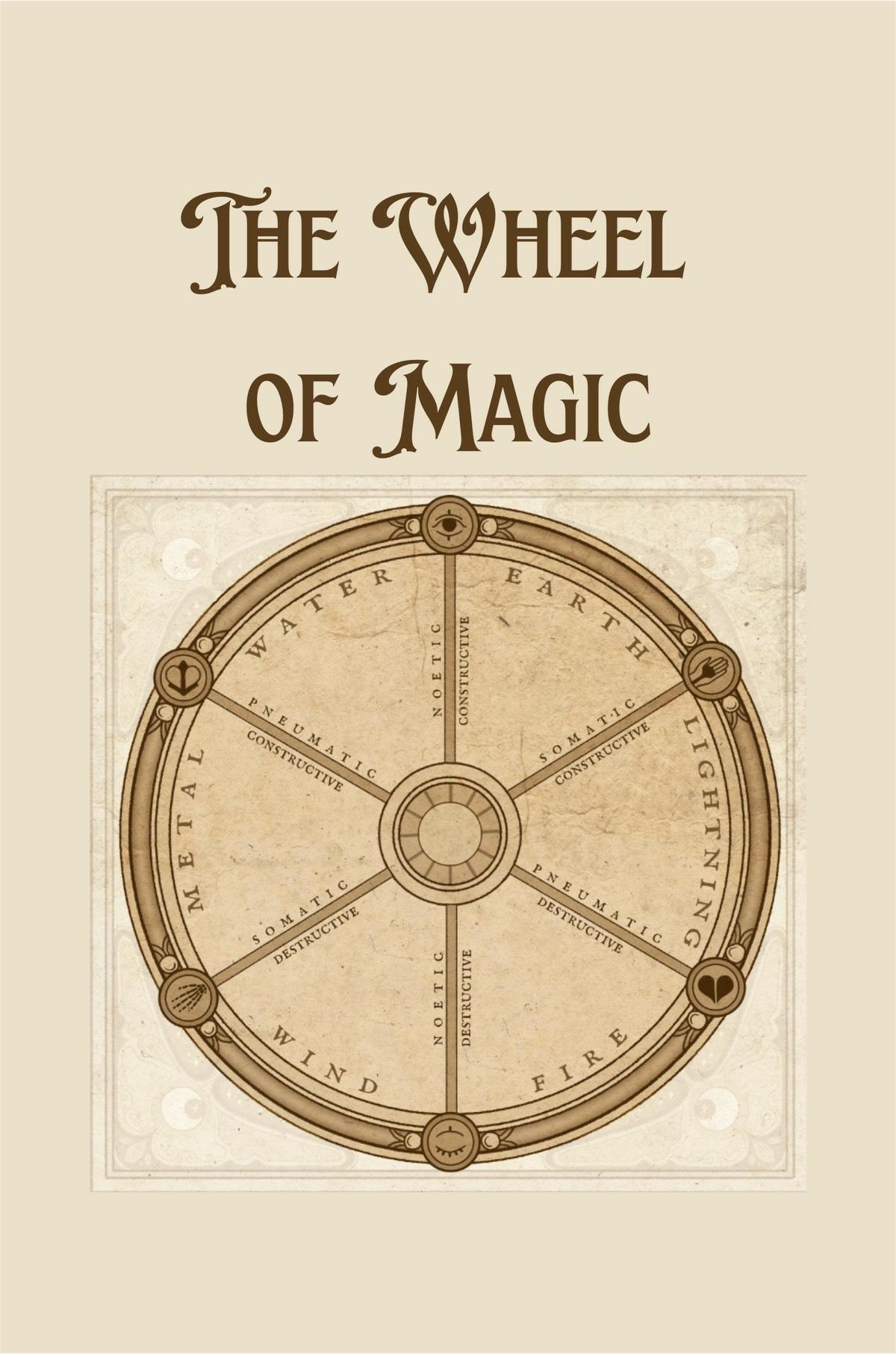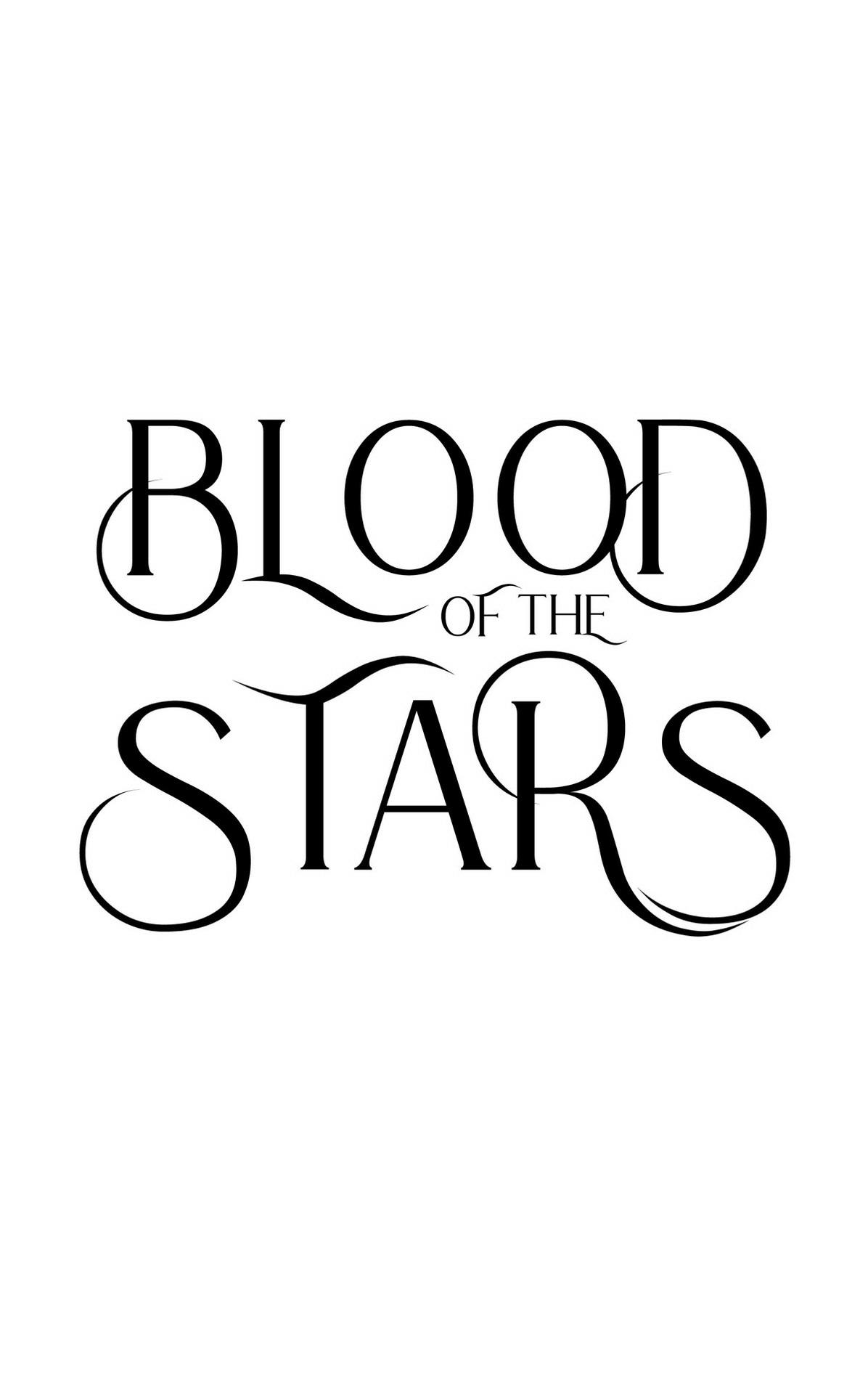https://ebookmass.com/product/blood-of-the-stars-
More products digital (pdf, epub, mobi) instant download maybe you interests ...
The Emperor of Evening Stars Laura Thalassa
https://ebookmass.com/product/the-emperor-of-evening-stars-laurathalassa/
The Emperor of Evening Stars Laura Thalassa
https://ebookmass.com/product/the-emperor-of-evening-stars-laurathalassa-2/
The Emperor of Evening Stars Laura Thalassa
https://ebookmass.com/product/the-emperor-of-evening-stars-laurathalassa-3/
Blood of the Devil Farmer
https://ebookmass.com/product/blood-of-the-devil-farmer/
The Norton Field Guide to Writing (Fifth Edition)
https://ebookmass.com/product/the-norton-field-guide-to-writingfifth-edition/
Blood of the Devil W. Michael Farmer
https://ebookmass.com/product/blood-of-the-devil-w-michaelfarmer/
The Scourge Between Stars Ness Brown
https://ebookmass.com/product/the-scourge-between-stars-nessbrown/
The Gloom Between Stars Piper Cj
https://ebookmass.com/product/the-gloom-between-stars-piper-cj/
The Stars at Night Gerri Hill
https://ebookmass.com/product/the-stars-at-night-gerri-hill/
Copyright©2023byKaryneNorton Allrightsreserved.
Nopartofthisbookmaybereproducedinanyformorbyanyelectronicormechanicalmeans,includinginformationstorageandretrievalsystems,withoutwritten permissionfromtheauthor,exceptfortheuseofbriefquotationsinabookreview
Thisisaworkoffiction Names,characters,places,events,andincidentsareeithertheproductsoftheauthor’simaginationorareusedfictitiously Anyresemblanceto actualpersons,livingordead,oractualeventsispurelycoincidental
CoverDesign:SaintJupiter
MapsandWheelofMagicartwork:CartographybirdMaps
For Silas, who motivated me to publish so I could make him proud. I'll take that peanut butter cup party now.
TheWheelofMagicismadeupofahub,sixspokes,andarim.
Hub: The simplest form of magic that only requires movement of energy to manipulate things. It manifests during adolescence,butfadesifnotdeveloped
Spokes:OnceaprogenyearnstheirstarlockduringtheirAwakening,theycanprogressindevelopingtheirmagicfromthe hubouttoaspoke.Therearethreesetsofspokes(somatic,noetic,pneumatic)eachwithaconstructiveanddestructiveside. Typicallyprogeniesdevelopaspecificskillalongonespoke,whichtheycansometimesmirrorontheopposite(constructive ordestructive)side.
Rim: Advanced progenies candevelop additional skills alongtheir spoke, butthe mostadvanced develop skills alonga secondneighboringspoke Thisthengivesthemaccesstotheelementalmagicfoundontherimbetweentheirtwodeveloped spokes.Rimmagiccanalsobeaccessedthroughbloodmagic.
Somatic:Progenieswhoadjustthebody(heal,harm,disguise,etc)
Noetic:Progenieswhotuneintothemind(thoughts,memories,emotionsetc)
Pneumatic:Progenieswhosiftthroughthesoul(motives,past,future,etc)
Forothertermspleaseseeglossaryinbackofbook.
Isthisthebeginning?
Blood of the Stars isthefirstbookin The Half-Light Chronicles,anditstartswithGaerenattemptingtotrackdownAeliana, thefriendhelostasachild.
Butit’snotexactlywhereGaerenandAeliana’sstorybegins.Ifyouwanttoseehowtheywereseparatedinthefirstplace you’ll wantto checkoutthe prequel shortstory, The Light That Takes, whichis available for free inbothebookand audio formatsonmywebsitewhenyousignupformynewsletter
Youdon’tneedtoreadtheprequelfirsttoenjoyBlood of the Stars,butit’savailableifyouwantit. Happyreading!
Chapter1
Chapter2
Chapter3
Chapter4
Chapter5
Chapter6
Chapter7
Chapter8
Chapter9
Chapter10
Chapter11
Chapter12
Chapter13
Chapter14
Chapter15
Chapter16
Chapter17
Chapter18
Chapter19
Chapter20
Chapter21
Chapter22
Chapter23
Chapter24
Chapter25
Chapter26
Chapter27
Chapter28
Chapter29
Chapter30
Chapter31
Chapter32
Chapter33
Chapter34
Chapter35
Chapter36
Chapter37
Chapter38
Chapter39
Chapter40
Chapter41
Chapter42
Chapter43
Chapter44
Chapter45
Chapter46
Chapter47
Chapter48
Chapter49
Chapter50
Chapter51
Chapter52
Chapter53
Chapter54
Chapter55
Chapter56
Chapter57
Chapter58
Chapter59
Chapter60
Chapter61
CONTENTS
Chapter62
Chapter63
Chapter64
Chapter65
Chapter66
Chapter67
Chapter68
Chapter69
Chapter70
Chapter71
Chapter72
Chapter73
Chapter74
Chapter75
Chapter76
Chapter77
Chapter78
Chapter79
Chapter80
Chapter81
Chapter82
Chapter83
Chapter84
Chapter85
Chapter86
Chapter87
Chapter88
Chapter89
Chapter90
Author’sNote
Glossary
KickstarterAcknowledgments
Author’sAcknowledgments
AbouttheAuthor
AELIANA HELD herbreathasshestoodonthethresholdoftheStargazer’sgate.Itwasthethirdplaceshe’dtriedthatweek the thirteenththatmonth.ShewasrunningoutofStargazers.
Aprieststoodbeforeher,guardingthegateasifthepropertyheldboundlesstreasures.Instead,itcontainedamodeststone tower and a freshlytilled garden, justenoughfor two servants ofthe Stars He staredatAeliana, his bushywhite eyebrows furrowinginthought.
“Agoldenarrow?”heasked “Itwouldfitinyourpalm,”shesaid.“It’smeantfordecoration,notasaweapon.” Heshookhishead.“Can’tsayI’veeverseenone.NotsinceI’vebeenhere.”
Aelianabitherlip,andtheoldman’sfrownshiftedtoafatherlysmile.
“I’veonlybeenherethirtyyears,though.Icouldbewrong.”Hepattedhershoulder.“Comeinfromthecold.Justbecause theStarsaren’toutdoesn’tmeanwecan’tprayoverwhatailsyou TheStarsaremorelikelytohelpthananoldarrow”
She tried to refuse, buthe tugged onher arm, drawingher into the sanctuaryofthe tower. Stone walls interspersed with narrowwindowsrosehightorevealasmallopeningatthetower’szenith Atnight,itwouldrevealthedanceoftheStars,and worshipperswouldcometobowandpray,butfornow,itshowedblueskyandtheedgeoftheSun.
“Somanypriestsandpriestessesputstockinoldartifacts,”thepriestmumbled.“Toomuchstock.They’reobjects,nothing more.Hereiswhereyoucanfindcomfortandaid.”
Hegesturedatthedirtfloor,andAelianareluctantlykneeled.
Shewasn’topposedtothefaith She’dspentafairamountofheryouthinStargazersbecauseherguardianshadnointention ofraisingher.Backthen,she’dthoughtArvidandVerawerelazy.Shehadn’trealizedthey’dbeenbidingtheirtime,waitingfor hertobecomeuseful Inthemeantime,she’dgrowntolovethepriestsandpriestesseswho’dguidedher,orreallysavedher, fromthedarknessherguardianssought.ThoseyearsofArvidandVera’sneglecthadbeenpeacefulcomparedtothelastfour years.
“SometimesIfindmydaytimeworshipevenmorerestfulwithoutallthecrowds,”thepriestcontinued,halfgruntingashe kneeledbesideher.“There’ssomethingmagicalaboutit.”
Aelianachokedbackabitterlaugh Ifheonlyknew
Theybothbenttheirheads,Aeliana’swavybronzelockswrappingaroundherlikeablanketfromheadtoelbow.TheSun warmed her skin even through the windows and her thin blue dress, its power flooding her blood, though she wished it wouldn’t.
Despiteheragitation,thepriest’smurmurslefthersleepy,andsoonshesensedtheSun’swarmthflowingnotjustthrough her,butalsooutofher
Aelianapeekedbetweenherlashes.Greenshootspokedthroughthehardearth.Whitepetalsunfoldedfromafreshstemby herknee,fartooearlyforthelongwinterandfartoofast Shesweptherskirtoverthem,thensqueezedhereyesshutagain,as ifshecouldhidetheinvoluntarymagicnotjustfromthepriestbutalsofromherself.
Afterseverallongmoments,thepriestrose Whenhisbackwasturned,Aelianareachedunderherskirt,pluckingthehalfdozendaisiesthathadgrownaroundher,eagertodisposeoftheevidenceofherwrongness.
“Oh!”Theoldmanturned.
Aelianashovedthebouquetbehindherback
“YoumightwishtotryGahldricValley’sStargazer,”hesaid.“Ihearthey’vereceiveddozensofshipmentsofartifacts.So manyStargazersintheeasternprovincesareclosingdown Notenoughworshipers”Hiseyesgrew troubled,eventhoughhe stillofferedherasmallsmile.
Shegaveahalfcurtsy,carefulnottorevealtheflowers,andbackeduptowardtheopendoor.“Thankyou,Father.Maythe Starsblessyouforyourguidance.”
Sheslippedthroughthedoorwaybeforehecouldkeepherlonger,thentossedthedaisiesbehindaclusterofwintergreen bushes Itwould have beenbad enoughfor the priestto discover her magic, butitwould be evenworse ifArvid and Vera discoveredshe’dusedmagicwithoutthem.NotthatAelianahadanycontroloverit.
Sheracedtothenearbywoods,duckingbetweenpinetreesandaroundtheremainingpatchesofsnow.Underthecoverof thetrees,shewasnolongerwarmedbytheSun,andsherubbedthegoosebumpsformingunderherthinsleeves.
She was careful to retrace the miles backto where she’d camped the nightbefore withher guardians For the millionth time, her mind and bodywarred over whether to return. Aeliana could continue the searchonher ownand use the golden arrow tocrossthebarrier backtoVendaras,thelandwherehalf-lightslikeher lived DescendantsofhumansandStarswith starbloodintheirveins.Peoplewithmagic.She’dleavebehindLorvandasanditsfragilehumansandberidofherguardians onceandforall
Buttheywouldkeepsearchingtoo.Whatiftheyfounditfirst?
Shewasn’tevensureshecouldescapethem.Supposedly,they’dsavedherasachildfromthewitchburningthathadtaken herparents,butthey’dtoldtoomanyliesforhertobelievethat Theytreatedhermorelikeaprisoner Everytimeshe’dtried running,shealwaysendeduprightbackwiththem.Sometimestheytrackedher,butmoreoften,shereturned.Theyneededthe energyinherbloodtodotheirmagic,butAeliananeededthemtopulltheenergyoutbeforeittoreherapart,orworse
She tripped over a root and caught herself on the sharp branch of a tree, the cut across her palmbringing fresh pain, followedbyahintofrelief Thescentofironmethernose,andsheshookawaythedesiretoexaminethewound,tosqueeze outmorebloodformorerelief.Astheenergybuiltinherblood,itwaslikesteamrisingtofillaroom.Releasingitwouldbe likelancingaboil.Thepainwouldbeworthit.
ButthatwasArvidandVera’sway,nothers
Shetoreoffthehemofherskirt,wrappingittighttocoverthewoundandstemtheflow.Herhandstrembledwiththeeffort, morefromthementalcontrolitrequiredtostaunchtheflowofenergythananyphysicalpain Shesatforamoment,closingher eyesandcountingouttenshakybreaths.
Accidentally growing daisies was one thing. Her blood was fairly harmless when contained in her body. But once the bloodwas removed? She shuddered.Her guardians haduseditfor unspeakable things.Andwhenshe’dtriedrunning,she’d unwittinglydonefarworse.
“Whatareyoudoing?”
Aelianastartedatthesharpvoice,thefamiliartonefillingherwithhatred.Shetuckedherinjuredhandbehindherbackas sheturnedtofaceVera,whostoodseveralfeetaway,armscrossedoverheramplechest
“We’vebeenwaitingallmorning.Itshouldn’ttakethatlongtocheckonemeaslyStargazer.”Theolderwomangruntedas sheturnedherstoutframebacktowardtheircamp.
Aeliana bit back her retort. They’d slept within two miles of each of the Stargazers her guardians had checked, but Aeliana’shadbeentwicethatdistance.SheslowedherpacetomatchVera’sshorterlegs.
“Well,didyoufindanything?”Veraasked “Nothing,” Aeliana said, hidingher smile. IfVera had to ask, thatmeanttheyhadn’tfound iteither. “Iwas hopingto try GahldricValleynext”
Verasquintedupather.“Why’sthat?”
They topped a small hill, and Arvid came into view, sprawled out on a blanket in the middle of a clearing. His eyes remainedclosed,ahalf-eatenloafleavingatrailofcrumbsfromhishand,acrosshisbelly,anduptohisbeard “It’snottoofar.Seemslogical,”Aelianalied,thenmentallybeggedtheStarsforforgiveness. TheycrossedtheclearinguntilVeracouldkickatArvid’sgirth “Getup”
Theoldmanjoltedawake,pawingatthecrumbs.“Whatisit?”
“AelianawantstogotoGahldricValley”ThewayVerasaiditmadeAelianatense “Saidit‘seemslogical’” “Shedid?”Hestood,toweringoverbothwomen,hiseyesnarrowed.
Her guardians were opposites whenitcame to heightand girth, buttheyshared enoughother features a rounded nose, pale blue eyes, and blackhair lined withgrey that Aeliana suspected theywere siblings After beingstuckwiththemfor fourteenyears,sheknewbetterthantoask.
“Nootherreason?”heasked
Aelianashookherhead,eventhoughsheknewitwasthewronganswer.Itwastoolatetobackoutnow.
“Don’tlie”Arvidslappedheracrosstheface,joltingherheadback
Hereyesstungwithtears,andhercheekwaslikefirewhenshetouchedit.Beforeshecouldrespond,hegrabbedherhand, holdingitoutpalmuptorevealhertornhemandhastilytiedbandage.
“What’sthis?”
“Acut,”shewhispered.
“Youusedyourblood?”Hisfacetookonaredhue,andhesqueezedherhandtighter Aelianawinced.“No.YouknowIdon’tknowhow.”
He yanked offthe fabric, stretched atthe edges ofthe wound until itreopened, thenpressed his thumb over it, drawing energyfromher blood and into himself. He stood straighter and rolled his neck, bouncingfromone footto the other like a youngmanreadytoenterastreetfight.
ThatsamesenseofrelieffloodedthroughAelianaasthepressureinsideherlessened,andshehatedherselfforit.
Arviddroppedherhandandsuckedinalongbreaththroughhisnose,closinghiseyes.“WeleaveforGahldricValleynow. Seemswefoundsimilarleads”
Nightfellastheyapproachedthevalley.Buildingsfannedoutasfarastheeyecouldsee.Lightflickeredtolifelikefirefliesas homeafterhomelittheirtorches.Thepaththeytraveledsplit,onewayheadingeastandwindingdownintothevalleytoward the city The other forked west, extending around the far side of the city’s Stargazer to eventually meet up with the main travelingroad.
Theytookthepathtothewest,headingtowardtheStargazer,whichstoodontheedgeofthehilloverlookingthecityinthe valley.The paththatled throughits gates was alreadyoccupied byworshipers tricklingin. Aeliana drankinthe sightofthe simple stone buildings. Several small chambers held whatwas likelythe quarters ofthe currentpriests and priestesses and theirfewservants.Mossandivyclimbedupthewalls,fillingthedeadnooksandcrannieswithlife.
Theholyquarterssurroundedthegrandestbuildingofall theStargazeritself,itsroofleftopentoprovideworshipersa constant view of the heavens It towered over the grounds, higher thanfour of the buildings stacked together Windows the heightofamanbrokeupthestoneexteriorallthewaytoitsapex,andAelianacranedhernecktotakeintheirstainedglass. CandlelightfromwithinlitupthedisplaysdepictingdancingStars,amixoftheirlithehumanformsandtheirdistantsparkling existenceinthesky.
Small clusters ofpeople crowded the garden, whichmetup withgroves oftrees extendingfar beyond the land directly surroundingthe buildings Somewhere past the trees, out ofsight, the walls ofthe propertystretched out to encompass and protecttheStargazer.
Cloudsthreatenedraininthedistance,butfornow,theStarswereout SheleanedfartherbacktotakeintheStars’dance, their movementandbrightness distinguishingthemfromthe plainstatic stars theydartedbetween.Theyshotthroughthe sky, spinninginpatternsthatheldarhythmdesperateforamelody
“Moveit,”Arvidmuttered,pullingherpasttheStargazer.
“ButIthought ”
“Notyet,”Verasaid
Theykept to the dirt paththat wound west of the property. Eventually, theystopped to settle against the boundarywall betweentwolargeoaktrees,therootsrisinglikeanestofsnakes
Theywaitedforwhatfeltlikehours,thetaskofwalkingsomuchinonedaytakingatollonAeliana.Hereyelidsdrooped, and her head listed to the left Hardlyanyone came fromthis direction, buteachtime someone did, Arvid and Vera tensed, studyingthestrangerbeforeleaningagainstthewalloncemore.
AsthecloudsrolledinandblockedtheirviewoftheStars,theyalldonnedcloaks.Thewalldidlittletoprotectthemfrom therain,andAelianawasn’tabouttohuddlewithherguardiansforbodywarmth
Finally, a girl approached, maybe a year or two younger thanAeliana’s seventeenyears. Arvid and Vera stood, pulling Aelianatoher feetwiththem Thegirl hesitated,her eyeswideningasshetookinthreestrangersblockingher path Without warning,ArvidsnatchedAeliana’shandandtookaknifetoherpalm,reopeningandextendingherwound.
Thegirlscreamed,butAelianaonlysuckedinabreath,tooshockedtonoticethepain,thentoooverwhelmedbythemixof fear and euphoria that always came witha larger loss of blood. It pooled inArvid’s hands and withit, her magic magic Arvidwouldharness.
Aeliana’sminddimlyregisteredthatthegirl’sscreamhadcutoff,blockedbyVera’shand Notthatanyonewasouthereto hearheranyway.
“No,” Aeliana murmured, her focus hazy with the internal shift She tried pulling her hand fromArvid’s grasp, but he tightenedhisfingersaroundher.
“Youwanttogetbackhome,don’tyou?”Veradraggedthegirlcloser.“Bewithyourownkind?”
Aeliana’svisionswam,andshereachedforabranchfromoneoftheoaktreestosteadyherself.“Not…notlikethis.” Arvidscoffed.“Youthinkthesehumansmatter?TheStarsseparatedthemfromusforareason.”
HesteppedawayfromAeliana,bringinghimselfclosertoVeraandthegirl
The whites ofthe girl’s eyes flashed inthe moonlightas she screamed againstVera’s hand and thrashed to getoutofthe olderwoman’sgrip
“We’rehumantoo,”Aelianasaid.
Orshethoughtshedid.Herwordscamebacktohermuffled.Maybeshe’donlysaidtheminhermind.Sheletgoofthetree and instinctivelypressed againsther palmto staunchthe flow ofblood Blinkingrapidly, she tried catchingup withArvid’s intentions.
Whenhereachedabloodyhandtowardthegirl’sthroat,Aelianalungedforhisback,pawingathisarmtopullhimaway
Another random document with no related content on Scribd:
Sam sat up and nursed his slightly-abrased face with one hand, then struck a match and lighted a candle with the other.
"—— yore sole, guv'nor," he muttered venomously.
Trailey knew almost at once, even before he heard Sam's familiar voice, that he was not in his own tent. His wife and daughter slept on folding camp-cots. Moreover, Martha would unquestionably have shrieked at the sudden disturbance caused by a man bursting into her tent and standing on her face.
After the startled Trailey had mildly expressed his regrets, he became gently remonstrative as Sam's remarks continued being painfully corrosive in tone and purport."
"Please don't use such language, Sam," he pleaded; "there is One above listening, don't forget."
Sam glared at the penitent "rancher," now turning uplifter.
"I 'ope there is. An' I 'ope—but wot's the good of 'opin'? Yer can't 'elp it. A hinfant in arms knows more 'n you. Wot d'yer want in 'ere?"
Deep concern chased the absent-mindedness from Trailey's face for a minute or two. Sam's pointed remarks pricked him ever so slightly despite his armour of calm detachment.
"I went for a stroll in the moonlight," he hedged stoutly to his questioner, and to his own immaculate conscience.
"An' got lawst," sneered Sam.
"It's such a peaceful night," Trailey murmured, ignoring the other's harshness; "and I thought when I saw your tent and horses that they were mine. Then that terrible cry..." and he shuddered at the recollection.
"It's a norrible row all right, guv'ner," said Sam, beginning to drop the ire from his voice and manner. "My opinion is this 'ere blinkin' camp at
Sarskatoon's 'aunted. You get ready as quick as yer can, an' let's slope orf ter the Colony ter see our land."
"Give Mr. Trailey a drink, Sam—to steady his nerves," volunteered Bert, genially, as he sat upright and dragged a green-and-gold dressinggown from the bed, draping it round his shoulders. "Have a little touch, Trailey; it'll do you good. It's rather a chilly night for visiting."
Precisely at the moment when Trailey's sudden entrance had awakened him, Bert was joyously riding a magnificent pinto stallion across the plains at full gallop. In fact, he was just going to bend over and pick Esther up off the ground, where she was lying directly in the path of two million buffaloes. The vivid novel, the ethereal night, Trailey's earlier visit, half a flapjack Sam had given him for supper, and the little man's glowing remarks concerning Miss Trailey, which somehow conveyed infinitely more than they described, all stimulated his romantic dreams. It was a bit of a come-down to have to talk about whiskey after soaring to such heights of heroism, but he tried to make the best of it. This absent-minded-looking wanderer was Esther's father, at any rate, and that was something.
After many weakly-expressed protestations, Trailey fell before Sam's repeated coaxing, and at last consented to try the flask. In extenuation, he said that in certain circumstances, of which undoubtedly this was one, such an act was not sinful.
Sam, with much gravity, duly absolved him. "Put it dahn yer, guv'ner," he urged, whereupon Trailey emptied the tiny flask like a shot, as though it were nothing but a bottle of stone-ginger. "Ah-h," he exhaled, pulling a wry face and gasping a little. In the meantime, Sam was delving into an imitation crocodile-leather portmanteau, in which he stored all his belongings, and from which he produced another half-bottleful of Scotch. He poured a reasonable quantity into an enamelled cup and held it to his lips.
"Good fer a crushed face," he said, winking impishly at Trailey, and then popped it down with that sublime faith which everyone now knows is more than half the battle of recovery.
Bert said that that beastly wailing had seriously affected his own nerves, and wondered if their visitor would object to him tasting a little drop on his own account, purely as a soporific, y'know.
"Yes, do, Mr. Tressider," rejoined Trailey, expansively. "The necessity is obvious."
"I believe I'll take Mr. Trailey's advice, Sam, if you'll—— Ah, thanks!" Sam was passing Bert a smallish dose in the cup.
Within five minutes, Trailey said he was feeling a lot better, and that he really ought to be going back to his tent, as his wife might be lying awake wondering where he was; so he sat down on Sam's blankets.
"You'd better 'ave anuvver, sir," said Sam, in a wheedling voice, "to 'elp keep the uvver one dahn, an' assist yer ter find yer way 'ome."
Beginning to glow with a wonderful content, William Trailey seemed only the tiniest bit reluctant, so Sam, with the manner of a fatherly retainer, partly filled the cup again and passed it to him.
"It's against my conscience," murmured Trailey; "but I'm quite sure the case warrants it. I feel that I'm already forgiven," and he passed to Sam the empty flask which he had forgotten he was still clasping lovingly. "Ah-h," he breathed, as the second portion of the flaming fluid crept along his veins and coiled pleasantly round his heart. "Just think," he said, "that this cursed drink is the ruin of thousands, yea, millions of men. Think of the starving children, and the drunkards' homes. Think of the degradation, and the prostitution, and the everlasting damnation which can be traced—like footprints in the sands of time—to the curse of strong drink. Think——"
"It's a bloomin' shyme, guv'ner," said Sam, closing his left optic at his partner on the bed.
"It really ought to be stopped," echoed Bert, smiling at Sam and at Trailey's rhetorical flight. That gentleman was fast regaining, in fact had regained, his customary placidity. The awful cry of distress was happily forgotten. He was no longer lost in a wilderness of tents. The world was a
glorious place after all, with the millennium only half a mile or so round the corner, and beautifully downhill all the way.
Occupied with these delicious sentiments, Trailey absently refused another little touch, but, upon noticing the rather hurt look on Sam's face, he said he would try to change his mind for the sake of friendship, which he did. Almost immediately he became by turns conversational, and ranting.
Enlarging on one of his themes, he said that a cousin of his, who was a steeplejack, had one bright morning fallen from the top of a very tall church spire in Derby, whilst under the influence of a small bottle of Allsopp's beer, which he'd consumed for his supper the night before. He said that this cousin, being a very fat man for a steeplejack, had bounced off the roof of the church and landed in the back-yard of "The Pig and Whistle" public house next door; and that when the landlord rushed out to him with a glass of neat brandy, he refused it.
"Great Scott! what ever for?" ejaculated Bert ironically.
"Because he was dead, Mr. Tressider," replied Trailey with deep earnestness. "The drink had killed him, poor man."
Sam appeared to be deeply moved by the story. He said that "'e thought it all sounded very true an' feeziable, an' jus' like one of them rotten stories wot yer read abaht in the newspypers. All the syme, 'e should very much like to 'ear wot the landlord did wiv the glarss of brandy arfterwards."
Trailey replied that the landlord turned teetotaler right on the spot, and threw the brandy away; which Sam, as an ex-barman, observed "was a wilful prevershun of the trufe, besides bein' a dam' silly thing ter do."
The lecturer now became still more discursive. He explained that the money spent in England in one year on intoxicating liquors would pay off half the national debt, build twenty-seven modern battleships carrying 12in. guns, equip and maintain a home for fallen women at Okhotsk, and even then leave sufficient money over with which to erect and endow a tinroofed temperance tabernacle at Timbuktu.
"By Jove!" cried Bert, to whom the news was a complete revelation. "Just imagine what could be done if we spent twice as much!"
"Not 'arf," said Sam, who was temporarily paralyzed by the astounding information.
"Or three times as much," added Bert, as his keen legal brain instantly grasped the significance of the statement.
As for Trailey himself, he had never paid for a drink in his life, so naturally he registered considerably less awe for his own statistics than did the others. Quite soon, being congenitally drowsy, he fell back on Sam's bed and lapsed into peaceful slumber.
Upon being prodded awake again, he asked Sam as a very special favour to take him home, a request the little Cockney, with his usual goodnature, readily granted.
Hastily jumping into a few clothes, Sam dexterously steered Trailey through the torn tent opening. They stood outside for a little while, ostensibly to admire the effulgent beauty of the matchless prairie night, but actually to permit Trailey to instruct the man in charge of the roundabout to stop the giddy thing at once. This the stupid fellow refused to do; so, tacking along in weird, zig-zaggy spurts, stumbling over pegs and ropes, the pair made their tortuous way to Trailey's own tent, which was a matter of only thirty or forty yards distant.
Sam noiselessly opened the flap and then began gently to push his lurching companion into the opening.
"Ah-h," sighed Trailey wearily, "so here we are at last, eh?"
Responding to a sudden mood, he turned and faced Sam. Swaying gently back and forth in the light wind which still went whispering among the tents, he surveyed his little guide in quite a fatherly and tender manner.
"Sham, me bhoy," he said, "'tever you do, keep away from—hic—the curs-ed drink. It's Satan 'imself. Goo'-night," then, turning round, he toppled
through the tent-door, which Sam, with his habitual good sense, was at great pains to refasten.
CHAPTER VII
Saskatoon Martha Trailey
The non-arrival of a thousand-pound draft from England was firmly anchoring William Trailey in Saskatoon. He was a moderately well-to-do man. He had piled up a little wealth in the insurance line, when securing new business was ridiculously easy—in the 'eighties and 'nineties of last century. His lawyers at Leeds, where he used to reside, were slowly but surely converting into cash and costs for him, some workmen's cottages in which he had invested a part of his savings. And he was sufficiently acute to be afraid that, unless he left Saskatoon as quickly as possible, he would be compelled to cable instruction to his solicitors to dispose of another row of houses.
Because of their promise to wait for the Traileys, the departure of Sam and Bert was postponed for more than a week.
Meanwhile, like the snowdrifts surrounding it, the camp slowly began to melt away. In small convoys—never alone—the colonists started off on their two-hundred-mile journey away from civilization. Blissfully unconscious of what lay before them, they bravely set out to discover a new North-west Passage into Utopia.
In the romantic Crusades, beneath the banner of the Cross, the mediæval conquerors used generally to ride at the head of their followers—both in advancing and retreating. Barr did not. In this respect he was a modern. His theory seemed to be, that, if anything went wrong, and he was first over the top, he might never come back; on the other hand, if he stuck to his dug-
out, and switchboard, and dispatch-box, he might save himself a lot of messy travelling. A fraction of Peter the Hermit's naked courage and stark self-denial would have made the Rev. Dr. Robbins a much more useful leader, too.
In any case, there was a huge amount of work for the Rev. Isaac M. Barr to do at Saskatoon. There was a nondescript crew of freighters to recruit and instruct, and there was a small mountain of stores and supplies to be bought, for although later on the colonists almost learned to do without food, they were inclined to treat themselves rather well at the start. Also baggage had to be found, returning colonists to be heartened, subordinates to be watched, and a multitude of minor details to be attended to besides.
The party was brimming with queer characters. These made things very interesting for themselves, and Barr, and everybody. Puritans and freethinkers; university and remittance men; ignoramuses and intellectuals; socialists and men of vision; ex-soldiers and ex-stay-at-homes; men who believed every word in the Bible was inspired by God, and men who believed everything in The Daily Mail was the same; Methodists, Anglicans, Calvinists, Catholics, Unitarians, Agnostics, and men belonging to twenty other sects; niggards and spendthrifts; men with brothers who were officers in the Yeomanry, and men with not a single drop of blue blood in their veins at all; men with money and very little sense; men with sense and very little money; men with both and men with not much of either; all began to dribble westwards along the Battleford trail, their eyes turned wistfully towards the only, for them, ideal life—HOMESTEADING.
Four hundred wagons at the very least commenced the trip. A few speedy colonists, travelling light, reached their destination, hunted their land, scraped the top off a couple of acres, sowed them with wild oats—and wilder mustard—and were busy hacking some innocent trees down with which to build shacks, before some of the more helpless ones even thought of quitting Saskatoon.
Quite early—a week or more perhaps—the trek began to sort out the invertebrates. These came straggling back to Saskatoon with mossy chins and bedraggled looks, reciting fearful yarns about how they had been forced to leave pieces of their backbones in sloughs; the sheen of their lovely
equipment in bottomless muskegs; shreds of nerve hanging on the almost perpendicular walls of yawning ravines; and, inferentially, their rapidly dwindling courage in the rapacious ooze of sticky alkali flats.
At that time, the West possessed (except nearer to Winnipeg) only the main line of the Canadian Pacific, the Calgary-Strathcona, and the ReginaPrince Albert branches, in the way of railways. The Canadian Northern transcontinental had been surveyed the previous summer, and the spot in the wilderness for which the colonists were bound was where this survey bisected the 110th meridian of longitude—almost exactly midway between the Battle and North Saskatchewan rivers.
The North-West Territories had not yet given birth to the charming twins, Alberta and Saskatchewan; but the cradle was bought, any amount of clothes were ready, and numerous attendants, in the shape of future government officials, waited round to be first with their congratulations.
Whatever induced Barr to venture so far, when there was any quantity of available land nearer, is not quite clear. Probably he was the law of survival's right-hand man; or he may have fancied himself as a second Moses. There is nothing to prove that the majority of the colonists would have refused to follow him into the Arctic Circle. All they desired was "a bit of land "—the land, the piece officially apportioned to the Colony, and to them.
During the time Trailey's belated draft was delaying them at Saskatoon, Sam and Bert amused themselves in various ways. The former decked himself out in a black, satiny shirt, an article of male apparel then greatly in vogue. These soot-hued garments were not supposed to show the dirt. Some of them didn't. The idea was a brilliant one, and the inventor of such a grand, labour-saving device Was doubtless well rewarded. A store-clerk in Saskatoon tried to sell Sam half a dozen of them.
"Look at this one I'm wearing myself," he said enthusiastically, pointing to his own shirt-collar, and then turning his coat-sleeve back so that Sam might see the wrist-band. "How long d'you think I've had this on?"
Sam was curious at first, then interested. He surveyed the store-clerk's collar, and cuff, then looked up in his face. The fellow was tall, with cadaverous features, and rather an oily skin.
"Dunno," said Sam, "but I should say abaht six months, p'raps."
The clerk laughed. He evidently enjoyed a joke.
"No," he said, "not that long; but I've had it on seven weeks. Ain't it a corker?"
Sam was awestruck. "Strike me pink!" he blurted out.
"How many d'you want?" asked the clerk.
Sam made a laborious mental calculation. "Give us four on 'em," he said. "An' 'ave yer got any black undershirts?"
"No," replied the clerk regretfully.
Sam was really grieved. He paid for his shirts and departed. The thoughts of wash-day hovered over the Barr Colonists, particularly the bachelors, like concentrated nightmares. Pioneering meant more than merely doing without tablecloths, and morning newspapers, and music, apparently. Keeping clean was a problem, too—one little problem among many much bigger ones.
Bert revolved happily round Esther Trailey, with whom he was now on speaking terms. He had mixed rather successfully with numbers of attractive girls in England, had even loved a few of them with a sort of deathless, polygamous, puppy-like fervour, but there was something infinitively more fascinating about having one's favourite girl in camp with one, in a far-off land, to protect from unknown dangers.
It is doubtful whether at home in England Bert would have come within Esther's orbit. He, as a blossoming lawyer, and she, as merely an insuranceman's daughter, would almost certainly have been separated by two distinct divisions of caste, perhaps by more. But Bert was already succumbing to
the democratic Canadian spirit which despises snobbishness. He was now in a country where Mrs. Tom, and Mrs. Dick, and Mrs. Harry are all equal; and where social distinctions are almost unknown; and where janitors' wives, and the wives and daughters of farmers, and policemen, and small shopkeepers are welcomed in the luxurious drawing-rooms of high government and municipal officials, bankers, brokers, and others of the highly-educated classes.
In any event, Esther's beauty would have bridged the social gulf pretty efficiently. She was a glorious blonde, and built as symmetrically as the Medici Venus, only not quite so robustly. She was easily the loveliest girl among the colonists. All the men under sixty were unanimous about it. Even some of the women had been heard to remark that "she certainly would be rather nice if she didn't spoil herself by being so forward."
Bert thought her anything but forward. She was as tantalizing as a mirage to him. Actually, Esther was almost as bold as a swan, and pretty nearly as brazen as a flower. An exceedingly dutiful daughter, she adored her mother, against whose somewhat nagging disposition she hardly ever openly rebelled.
"Really," she used to think when she was alone sometimes; "I don't wonder at mamma being so irritable, when she sees how fearfully helpless dad is. Fancy him sacrificing all the comfort of our dear little home in England to drag us out here to live on a ranch—or whatever it is they call it! Why, he... Poor old dad!" and she would smile to herself as she recollected how pitifully pathetic he had looked when one of the horses one morning had stood on his foot, the one with the corn on it. "Ranching!" she often mused contemptuously. "Dad should have rented one of the allotmentgardens on the Headingley Road and tried his hand at that first."
It was the third or fourth morning after her father's inspiring temperance lecture in Bert's tent that Esther laughed outright at her thoughts, which had been running along lines like those just mentioned.
"What are you laughing at?" her mother demanded peevishly. Mrs. Trailey was rinsing a couple of towels in the wash-hand-basin just outside
the entrance to their tent. "I don't see anything to laugh at," she went on; "especially now your father has taken to drink."
"Drink! Father!" cried Esther in astonishment. "What on earth do you mean, mamma?"
"What I say—silly," snapped Martha Trailey. "He's gone and broken my poor heart," and she twisted and wrenched at a helpless towel in the extremity of her grief.
"I can't believe it, mamma. Why, father used to lecture at the Band of Hope meetings at chapel!"
"Don't I know it! And now he's brought us down to this! Mind you don't marry a man who lectures at Band of Hope meetings—they're all alike, you may depend. The Rev. Jeremiah Sittingbourne's words are coming true— every one of 'em. The very day you were christened, when he came for tea, and I hadn't any cake made, and I had to give him bread and butter and jam, and he asked a blessing just the same as if it had been one of my best plum cakes, 'Yes, my dear Mrs. Trailey,' he said, after he'd drunk four cups of tea, and then wiped his whiskers on his pocket-handkerchief—you remember his white whiskers all stained yellow round his mouth, don't you, Esther? 'Yes,' he said——"
"Of course, I don't remember, mamma. I was only a baby. But where did dad get the drink?"
"How do I know where he got it? He's saturated with it yet. He smells like that low public-house at the top of the High Street, where that cat, Mrs. What's-her-name, the one the chapel-folks said did away with her first husband; you know the one I mean—'The Woman in Black'—or is it Pink? —the public-house is called. Oh, dear me! what will become of us now? What with a drunken husband; and a daughter that should have been a son —-and would have been if my prayers had been answered—but it's like the Rev. Mr. Sittingbourne——"
"Sh-h, 'sh-h, mamma! here's dad coming now. One of the horses is bringing him on the end of its rope. Don't for goodness' sake let him hear
you carrying on so. Perhaps he was worrying about our long journey, and ——"
"Worrying! Your father worrying! Would to God—Oh! that ever I should say such a thing!—and me with two brothers missionaries—or would have been if they hadn't both been taken to heaven in their infancy when your grandmother Bickering was having children too fast. Mind you never have children too——"
"Mamma! Stop it! Do please remember that I'm grown up now, and may understand some of the things you are talking about."
"Ah, my girl, you'll understand well enough if you ever get a drunkard for a husband. And you'd better watch yourself with that young fellow next door but one. Those flighty young men who wear velvet corduroy breeches generally come to a bad end. I remember the Rev.——"
"Mamma! I won't listen. Here are Sam and Mr. Tressider coming this way now.... How do I look in this old blouse?"
Esther hurriedly disappeared within the Trailey tent, where, among many other things, a mirror was conveniently kept.
The two young men were indeed approaching. Bert, ignoring formalities, commenced chatting with Mrs. Trailey. Sam, who had noticed the sparks falling from the good lady's eyes, went and assisted her husband to tie his horse to the wagon. Tying knots in halter-shanks was a problem in advanced mathematics for Trailey, and one which threatened everlastingly to remain as much of a mystery. He had tied hundreds of men to annual insurance premiums for the rest of their lives—making a neat job, too; but when it came to tying a horse to a wagon-wheel with a bit of rope, well, that was not so easy.
"I trust the howling didn't upset you the other night," Bert was saying. "It was rather an unearthly row, wasn't it?"
"Yes; and they say those animals are ferocious and will attack women and children when they are in packs and famished."
Mrs. Trailey was inclined to sacrifice everything to fluency. She turned towards Sam, who with Trailey had strolled up to the tent. She was just going off into another reminiscent flight, when the little man broke in:
"Them animals are skulkin' cowards, missis." He had evidently overheard Mrs. Trailey's last remark. "They ain't got no more nerve nor a sixpenny rabbit. That one the uvver night shut up when me an' yore good 'usband 'ere went ahtside an' made a noise like a dyin' sheep."
Mrs. Trailey went for Sam as though she had known him for years. Her face reddened, and her greenish eyes flashed fire.
"So you were with my husband, were you? And you're the serpent in his garden, are you?—tempting him, and leading him away from the narrow path. Then perhaps you can inform me where he got his drink from?"
Sam was not the slightest bit discomfited by Martha Trailey's anger. "I only brought 'im 'ome, ma'am," he said, with his customary good-humour. "My pal 'ere, Mr. Tressider, gev 'im a little snifter—ter keep aht the cold hair, as yer might say. 'E'd bin fer a walk dahn ter the river, ter communicate wiv 'is thoughts."
Mrs. Tressider now faced Bert, whom for some inexplicable reason she liked much less than she did Sam.
"You ought to be downright ashamed of yourself, Mr. Tressider. You've ruined my life—wheedling my poor, weak-minded husband away from the fold. Never since he signed the pledge the year we were married, and then started speaking at the Band of Hope, has he touched a drop of drink, and that's twenty-two years come June quarter-day. I remember it well, because the Rev. Duncan Mc—Mc—dear me, what was his name now, William?— McWhipple, was it? No—it must have been McNoddy, or McTavish, or some name like that. Never mind, though. I remember when he filled in the form for my husband to sign, I asked him if he knew of a public-house where we could sell the barrel of ale we had in the cellar. My husband wanted to empty it down the drain, but that seemed such a sinful waste. 'I really don't know of such a public-house, Mrs. Trailey,' the Rev. McWheesey said—-Ah! that was his name; I remember now! And then he
told us to try The Flying Horse on the corner, because, he said, the proprietor was Church of England, and would most likely allow us half what we'd paid for the ale, and so—
"So the Rev. McWhat's-his-name was a bit of a lad, eh?" interposed Bert laughingly.
"He was sixty, if he was a day; and as good a preacher as ever came to our chapel. He was a saint, young man—if ever there was one. That's why we got him to marry us. My husband gave him four shillings for himself— two two-shilling pieces. I remember it all just as if it were yesterday. But he died soon after, poor creature."
"Ah-h," sighed Trailey, "so he did." That sleepy-eyed rancher was seated on a box of evaporated apples which stood conveniently just without the tent. "So he did," he repeated absently to himself, being careful to turn well away from his wife's challenging eyes.
Martha Trailey was a smallish woman with faded, yellow hair; and she was a scold. Also she carried the worship of cleanliness to the point where it becomes a nuisance. The husbands of such women never know the glory of dropping cigar-ash on their own carpets, neither do they experience the joy of paddling through the house in muddy boots. They slink about their own homes like lodgers three months in arrears with their board-bill, and unless they go into the furniture-removing business, so that they may with impunity upset other women's rooms, they are likely to look henpecked and soured, and soon begin secretly to wish they were either unmarried or dead, whichever strikes them as being the more preferable state.
Presently Esther emerged from the tent, looking as lovely as the sparkling, spring morning itself. Smiling a greeting at Bert and Sam, she stood listening to the conversation. She wore a white silk blouse, short grey tweed skirt and polished brown shoes. Her hair of burnished gold was drawn back loosely and tied low on her neck. The light from a glittering sun played hide-and-seek in its folds, while tiny currents of breeze wafted a few stray wisps of silken splendour about her face.
Bert was lost in admiration, and showed it, and, not being buried under six feet of earth, Esther rather enjoyed the sensation. Even Sam was constrained to mutter to himself—"Gawd! wot 'air!"
Esther had heard her mother's prolix reminiscences from within the tent. Thinking to make some sort of excuse for them, she said:
"Mamma is a bit harassed. She doesn't sleep very well in the tent."
"And how do you know, young lady?" Mrs. Trailey retorted, eyeing her daughter from golden crown to shining shoes in one swift glance of appraisal tinged with pride. "I notice you sleep well enough—and long enough, too; even if we are pigging it in a beastly tent—leaving your mother to wash and worry and battle with this everlasting dirt. Why, when I was younger than you are by three years and more, and long before I ever dreamt of marrying a drunkard"—and Martha Trailey cast a scorching glance at her husband, who was dreamily surveying a fluffy bit of cloud which hung in the crystal air like a tiny puff of white smoke—"I was scrubbing and washing and darning my finger-ends off from morn till night —H'm! there goes that dolly who was in our cabin on the boat, Mrs. What's-her-name—the one who was always pulling people to pieces— never did her hair in the morning; only half washed herself; shoes all undone; her bodice where it showed above her blouse as black as Sam's shirt there; just lolled about and talked and talked till I thought sometimes I should scream. I pity that husband of hers. Just look at the poor fellow perched on top of that load!"
"Anuvver rarncher," commented Sam, as they all turned to watch a citybred colonist, in white collar and cuffs, driving an ox-team, which waddled past with a ludicrous, swaying gait.
"I suppose we shall look something like that in a day or two," said Esther—"mother and I balanced on top of the load, and dad driving the horses."
Mrs. Trailey snorted disgust and flung a towel across a tent-rope where she left it to dry.
Trailey withdrew his vacant stare from the speck of fleecy cloud and let it rest for a moment upon the passing oxen.
"Ah-h," he sighed, but whether with regret, resignation, sublime content, or indigestion, it is difficult to say. It was his favourite expression, and one equally applicable to all situations. It seemed to denote a sort of fatalism, a passive "amen" to everything.
"Would you care to come for a stroll through the camp, Miss Trailey?" said Bert, apparently anxious to ease the tension obviously existing in the Trailey family.
Esther smiled consent, whereupon the couple walked off in the direction of Saskatoon, which was about a quarter of a mile away. They were a splendid-looking pair. Both were bare-headed. Esther's hair glistened gloriously in the sun. Many an admiring glance was cast in their direction as they slowly threaded their way through the camp. Youth, that incomparable ally, was heavily in league with them both.
"Did you really give father some drink, Mr. Tressider?" Esther asked presently.
Bert smiled and looked down at his lovely companion. She didn't appear to be the least bit annoyed.
"Yes—a drop. Why?"
"Mother will never forgive you. She has such a horror of the drink."
"So has your father, I assure you. He took quite a lot of persuading at first; but after he'd drowned his conscience in the preliminary gulp, he became quite partial to it. What is your own standpoint on the drink question?"
"I'm not rabidly prejudiced. In fact, I think a good spree would do some temperance fanatics good."
"For a Band of Hope lecturer's daughter you are a trifle advanced, aren't you?"
"Oh, I don't know. Even the daughters of temperance lecturers can have opinions, I suppose—not to say tolerant ones. Some people are so occupied with their neighbours' failings that they entirely overlook their own. I don't for the life of me see what right anyone who is full of envy, and spite, and cant, and who eats as much as a pig, has to talk about a man who occasionally drinks a drop too much."
"By Jove! you're something of a philosopher. That's rather unusual for a woman, isn't it?—a young, good-looking one, at any rate."
"Am I good-looking then?" laughed Esther carelessly.
"No, you're not. You are the most beautiful——"
"Just look at the sky. Did you ever see it so far away in England?"
Bert looked at his companion's upturned face, which was rosy with blushes.
"No, I didn't. It's too dashed far away. This country would be a lot cosier if it weren't so big. But coming back to——"
"——And this air," interposed Esther; "surely it is blowing from off a frozen sea of wine," and she opened her pretty mouth slightly, inhaling deeply.
"You evidently hate compliments," said Bert.
"I detest them. Talk about something else. What are you intending to do when you get to your land?"
Bert paused a little while before replying. The change of subject was too sudden, too much of a flop from the heights of playful badinage with a lovely young woman, to the sordid depths of reality.
"Jolly well get married—that is if I can persuade some charming girl to have me," and as Esther turned and looked at him, probably to see how earnest he was, his eyes twinkled, half humorously, half seriously.
"Some nice girl you know in England, I suppose?"
"Quite likely," returned Bert seriously—then all at once thinking of something, he abruptly extracted a photograph from his inside jacketpocket, and passed it to his companion.
"What d'you think of that young lady—for a rancher's wife?" he asked.
Esther examined the picture with careful interest.
"I think she is a very strong-minded girl," she said coolly, as she returned the portrait.
"You are absolutely right—she is. She's my cousin."
Esther requested another glimpse of the photograph.
"Hasn't she lovely features?" she said. "And her eyes are simply wonderful. Married, I suppose?—but I think you said so, or——"
"Yes, married, thank God! the day before we left Liverpool."
Esther returned the picture to its owner. All at once she felt generously inclined towards the original.
"She's the loveliest girl I've ever seen—in a photograph, of course. How lucky her husband must think himself!"
Bert, who was only twenty-one, whereas Esther was at least getting on for twenty, was a shade baffled by this sudden display of enthusiasm.
"Thanks!" he said, returning the photograph to his pocket. "He must. But haven't we gone far enough? Let's wander back; or, better still, let's stroll down by the river and watch the logs and trees go floating by; we can circle into camp that way."
"I should love to, but we must go straight home. Mamma will be awfully vexed if I'm not there to pretend to help her with dinner."
"Very well. Have you enjoyed the walk?"
"It's been lovely."
They strolled back. Esther was radiant. She was full of piquant remarks regarding the curious sights surrounding them. With an adorable mixture of ingenuousness and shrewdness she asked Bert innumerable questions, which he, in his tremendously superior wisdom, took great joy in answering.
When they had almost reached their tents again, Bert commented on Esther's high spirits. "You are evidently looking forward to our trip to the Colony, Miss Trailey?"
"Yes, I am. It will be so amusing to watch dad driving the horses, and mamma sitting on top of the packing-cases giving a thousand orders."
"And you—what shall you be doing?"
"Oh, I shall walk most of the time. I love walking."
"So do I. Perhaps we can arrange to——" but just then, annoyingly, Esther excused herself, and ran off into the tent.
Bert joined Sam, who was busily engaged with William Trailey, teaching him how to steer a team by pulling an imaginary left rein to go to the left, and an imaginary right one to go to the right.
"We s'll make a rarncher of yer yet, guv'ner," said Sam, as the intricate problem slowly percolated into his pupil's intelligence.
Trailey didn't seem at all sure about it. At the close of the lesson, he said: "Thank you very much, Sam. I think I shall be able to manage it after a few years."
CHAPTER VIII
On to Battleford
Excitement and bustle prevailed throughout the camp. Every day ten, fifteen or twenty teams, nearly all hitched to garish covered wagons, started out along the Battleford trail. Plentifully sandwiched among them were Indian, half-breed and white freighters, their worn and dingy equipment contrasting vividly with the resplendent convoys of the Barr Colonists.
The Rev. Isaac M. Barr engaged scores of teams to transport surplus luggage, stores, hospital and general supplies to the far-distant Colony. This was his great Transportation Company going into action for the first time. Blithely it charged the sticky trail. By the time May Day arrived, every slough, and creek, and gumbo flat from Saskatoon westwards for two hundred miles, was decorated with one or more mired wagons. The piercing squeaks of ungreased wagon-wheels heralded through the prairie solitudes the passage of the pioneers.
Perhaps it was because Barr's Transportation Company only just escaped being stillborn that it was so weakly. Its wagons, though driven by professionals, were quite as expert in getting stuck as were those of the colonists.
Some families brought out pianos, and even whole suites of furniture with them, but the greater number had been content to pack their belongings into a few large-sized, hoop-ironed, wooden cases, heavy as lead. It was the more cumbersome of these pieces of luggage which broke the backs nearly, and the hearts, of the Transportation Company's drivers, when they were forced to unload and lug the massive boxes through waist-deep water.
Camp-beds, ploughs, stoves, tents, the inevitable portmanteaus—all found tottering repose somewhere or other about the piled-up loads. Infernal multi-toothed drag harrows hobnobbed with tender stove-pipes. Dismantled disks nestled familiarly against beautiful English blankets. Bags of flour and sugar committed hari-kari on projecting nails, or on jagged hooping iron, stoically disembowelling themselves like disgraced Japanese officials.
The Trailey party met many colonists trickling back to the base at Saskatoon, en route for England. Woe-begone faces—mostly unwashed and unshaved; disillusioned eyes; grubby hands, and clothes showing signs of having repeatedly been slept in, were the distinguishing marks of these panic-struck Sunday-afternoon colonizers.
There is something sad about pioneering. So many broken hearts and shattered hopes go into it. The rewards are so slim, and the drudgery is so sure. Westminster Abbey treasures the bodies of none of the Empire's scouts. They are out on the veldt and the prairie, at the bottom of the oceans and the inland seas, and buried deep in the heart of virgin forests. The applause of the gallery was never theirs; neither were their names honoured by being written in big newspaper headlines beneath those of murderers, prize fighters, and divorced movie stars. Apparently there is much more notoriety to be got out of robbing a bank than there is out of taming a patch of prairie; which is as it should be, perhaps, considering the difference in the risk.
When meeting parties of advancing colonists, the faint-hearts naturally offered voluble excuses for running away. They complained bitterly of the awful loneliness, and of the terrible obstacles with which Barr's Point to Point was so plentifully studded; they objected to the obvious scarcity of theatres and music halls, and to the untrodden wildness of the prairie. The very immensity, and its emptiness, frightened them.
Whenever he could, Sam made a point of asking the stragglers why they were going back. It amused him. People always interested him more than objects did. One flat-faced man, with wide-spread ears, looked back along the trail lugubriously, when Sam stopped to speak to him, and said "there warn't enough —— 'ouses up there for 'im."
"Wot!" exclaimed Sam, feigning ignorance—"not enough blinkin' 'ouses!"
"No," replied the flat-faced man; "there's nowt up there but sludge, an' watter, an' steep 'ills like 'ouse-roofs to break yer —— neck goin' down."
"Yes, mister," added a voice, which belonged to a big, fat woman, who popped her face out of the back end of the schooner-top; "an' there ain't no schools up there, neither. That man Barr's a proper scoundril—inticing decent people away from their 'omes. Our Horice here"—Horice was hiding his genius somewhere inside the covered wagon—"wants to be a archytect; he's got a stificate from his schoolmaster intitling him to try for a scholarship. How's he goin' to get to be a archytect up there? That's what I'd like to know, mister."
Sam tried to assume a worried expression, in sympathy with such profound concern, but he found it difficult. The woman's appearance was too comical. She had three large curling-pins in her hair, one just above each ear, and the other in the centre above her forehead. As her cheekbones were very wide, and her brow somewhat narrow, her face looked for all the world like a cross between a problem in geometry, and a boy's kite turned upside down.
The party's transport animals were both of them red-and-white oxen. While the woman had been addressing Sam, the tired brutes had flopped down exhausted in the trail. Their mouths were open and flecked with foam, and their flanks palpitated rapidly like a dog's.
Sam turned his gaze away from the gaunt and played-out beasts. "Where are yer goin' to nah, then?" he said to the man.
Two voices replied so exactly in unison that they seemed like one: "Wolver'ampton."
"'Eaps of 'ouses there, I suppose?" remarked Sam mildly.
"Miles an' miles of 'em," said the three-cornered-faced woman, as she adjusted one of her curling-pins with a whitish hand, which was
embellished with one thin wedding ornament and three or four ruby and sapphire rings.
"All the 'ouses there is joined tergevver, eh?" said Sam—"like strings of sossidges."
"They are an' all," replied the flat-faced man, with a touch of ecstasy in his voice.
"'Cept where the pubs, an' popshops, an' streets makes openings in 'em," added the woman.
At this juncture, Trailey's team caught up behind, so Sam clicked to Tempest and Kruger to move along.
With a lusty whack across the ribs with a stout poplar pole, administered to the panting nigh-side ox with marvellous dexterity, the flatfaced man warned his animals that it was time to get up. The sudden jerk, when they lunged to their tired feet, nearly threw the woman out of the wagon.
Within forty days, two or three hundred Barr Colonists were back in England. The English newspapers appropriately christened them "Barr Colonist refugees."
Hour after hour, and day after day, the procession of wagons creaked slowly along. Tin pails drummed and chattered. Corners of cook stoves chewed away industriously at paint-veneered, near-oak wagon boxes. Stable lamps swung like pendulums from the hoops of the schooner-tops. Plough handles, and fork shafts, and silver-mounted walking-sticks provided temporary accommodation for anything that would consent to be hung, from a lady's bonnet to the back of a kitchen chair.
Women—and ladies—who never in their lives had ridden in anything slower or more prehistoric than a tram, sat perched high up on top-heavy loads built by grave-eyed men with a blissful disregard of such a thing as centre of gravity.
Children fidgeted and cried and slept in crevices between packingcases. Older children alternately rode and chased about alongside the teams. Miles of heavenly puddles supplied them with unlimited paddling. Untoughened skins frayed and peeled and tanned. Boots became sodden, curled up round evening campfires, then in the morning refused to be worn.
Pure light-heartedness was the prevailing characteristic. It must be confessed, though, that quite often such an admirable spirit was simply the effect of ignorance. The pitiful greenness of everyone was so acutely evident to experienced spectators as to be provocative of the keenest mirth. In subsequent years, some laughed—and still laugh—over reminiscences of multitudes of tragi-comic incidents more heartily than the colonists themselves.
Very few of the men had ever handled a pair of lines. Nothing in the whole range of ignorance was more obvious than that—especially to the poor, dumb brutes with the bits in their mouths. It was a ghastly experience for them. Only a very small proportion of the drivers had the faintest conception of what constituted the proper handling and care of horses. The oxen had the advantage in that respect.
But there is a final way out of every insupportable difficulty—for dumb beasts, at any rate. They could always die. Scores of horses did eventually. If they survived the hardships of the trail and the abysmal ignorance of their masters, it was only at the expense of their constitutions, which shortly afterwards could stand no more, and at last succumbed. Even the prairiehardened spirits of acclimatized bronchos drooped, finally, in many cases, departing for an equine heaven where perhaps green Englishmen are refused admission.
Many oxen perished. Those that did not grew terribly emaciated, and looked about them with despairing eyes, probably wondering what they had done to offend the grim reaper that he should refuse to waft their own tortured spirits into the land of everlasting cuds, where everything was green except wagons and men.
Imitation pioneers with faint hearts, wobbly wills and rubber spines, sat back in Saskatoon, listening by day to the hair-raising stories of retreating
colonists; and at night dreaming of miles of asphalted, lamp-lighted thoroughfares lined with semi-detached villas of a deadening sameness, where one could always find one's own rented house by counting either from the top or the bottom of the street.
The weaker spirits, sprouting white-feathered wings streaked with yellow, promptly flew back to England ignominiously. Others spun their feeble pluck into nets of vacillation and timidity, in the toils of which they became inextricably tangled. Yet others, shortening their horizon, and taking a reef in their vision, cast shrewd eyes at what lay nearer their feet. These developed into citizens of Saskatoon and other places farther south.
The weather still kept magnificently fine. The frost came out of the ground with a rush, leaving in its wake a carpet of purple anemones. The sun shone forth with undiminished splendour, wringing indefinable suggestions of fertility and growth from the pleasant-smelling earth.
Disappearing snowbanks fed willow-fringed sloughs to the brim. These tiny fictitious lakes sparkled in the sun like crystals. Brilliant-hued mallards preened themselves in their mirror-like surfaces. Lowly mud-hens sailed in and out among the grass and reeds, cheerfully challenging the broadsides from the colonists' guns long after their aristocratic relations had kicked the shimmering water into ripples and flown away.
Frogs, the only infallible harbingers of spring, rehearsed incessant and monotonous choruses. Deep-toned bassos kept them in time with rasping croaks. A shot from a gun, or a sudden shout, would turn off the music like a tap—one partly-trained voice occasionally lagging a little behind in a sort of self-conscious note.
It was through such scenes as these that the wagons of Trailey, and Sam and Bert, had been travelling for two whole days. Everything was progressing swimmingly, both literally and metaphorically speaking. In spite of detouring round sloughs, and making quick rushes at deep, boggy creeks, Trailey had succeeded in getting stuck a number of times. But always either Sam, or someone of experience, had come along and hauled his wagon on to dry land.
Then, towards the evening of the second day out from Saskatoon, Trailey, whose team was somewhat slower than Bert's, had again dropped behind. Suddenly the trail brought him up against a series of sloughs which appeared to run into each other and stretch to right and left as far as eye could see. Except for a few experimental wagon-tracks branching off here and there, the main trail led directly into the water.
So into it Trailey bravely steered his team, which, now being accustomed to the luxury of having its load pulled out for it, lunged along through the water for a matter of twenty or thirty yards with a very deceptive simulation of enthusiasm, and then abruptly stopped. After plunging about a bit in a highly hypocritical effort to move the wagon, the horses unanimously quit, and then calmly pretended to drink the stirred-up water which reached to their breasts.
"Gracious me!" cried, a well-known voice from the top of the loaded wagon. "But there, it's just what I expected. Didn't I tell you, William, when I saw that crow fly over the tent this morning, that either somebody was going to die or else we should all be drowned in a bog? But you're so stupid. You never heed me, who's been your faithful wife these twenty years and more. If I was like some women I know—and you know, too"—Martha Trailey grew hintingly mysterious—"no need to mention names. You know well enough. You needn't look like that—as if you didn't know what I meant. I can read you like a book. That Mrs. What's-her-name, for instance, who you used to——"
"Martha, my dear," expostulated Trailey from the front of the wagon, where he was supposed to be driving, "please keep quiet a minute. This is rather an awkward place."
"Keep quiet!" retorted Mrs. Trailey. "Keep quiet, did you say? Well, of all things! I wonder what next. Keep quiet—yes, I should think so. William Trailey; allow me to tell you that ever since you kissed that cat Priscilla Pilkins at the Bible Class Social Evening, thirteen years ago come Esther's birthday, I've been a quiet wife to a deceitful husband. Yes, and a faithful mother, too; but what thanks did I ever get for it? Tell me that, William Trailey. You can't, you know very well you can't. And now you are doing your level best to drown us all. Oh, dear me! never any sympathy from
anybody. No comfort; no home to go to—no anything," and had not Martha Trailey been so busy assisting her husband to solve his present difficulty, she would certainly have shed a few tears.
The wagon was stuck to its hubs. Viewed esthetically, the slough was really a pretty, miniature lake, and precisely the kind of duck-pond every Barr Colonist was longing to find on his private estate. Queerly, though, the glamour of lakes was already beginning to wear a bit thin.
The other wagon, with Sam as pilot, was out of sight behind a clump of naked poplars on the farther shore. The little Londoner, as usual, had muddled safely through.
During a large part of the afternoon, Esther and Bert had been walking ahead of the teams, presumably to scout for the bad spots in the trail, but they had lately fallen a considerable distance behind. With thoughts and emotions deliciously intertwined, they sauntered idly along. Through some mysterious magnetism, they occasionally touched one another—a shoulder, perhaps, or an elbow, or merely a finger-tip. Probably it was because the prairie was such a tiny place, that always when they examined anything, a flower, a pussy-willow, a cloud effect, they kept so close together. Great masses of smoky-white cumulus cloud rode immobile as continents in an ocean of blue. The day had been windless and warm, threatening thunder. For the prairie it had been languorous, the sort of day on which souls go looking for their affinities, and the sort of day they generally find them, too. Esther's eyes were swimming with delight, if not actually with rapture, perhaps with something even deeper still. Bert also reacted to the beauty of his surroundings. It was springtime, and he was quite a normal young man.
Esther had stopped to gather a bunch of fluffy-petalled anemones, which she had noticed dotting a sunny knoll in purple profusion. Then they had lingered to listen to a handsome meadow-lark proclaiming to himself and all the world, but particularly to his mate on a stump about a hundred yards away, what a noble fellow he was. His clear, liquid notes, pitched in a slightly melancholy key, just seemed to harmonize with the mood of the listeners.
The summer-like heat was playing havoc with the trails. Those colonists who had struck camp early and commenced their difficult trek, though they knew it not at the time, were far the luckiest. The frost-bound under-surface of the treacherous ground was a certain safeguard against the misfortune of becoming deeply bogged. Especially was this so where water abounded.
But the heat was doing its work well. Wagon-wheels cut into the sodden soil like sharp spades. Moreover, scores of wagons had churned the wet spots into mushy quagmires. The colonists had learned and practised their first lesson in freighting, of cutting and spreading willow bush and young poplars across the trail, but frequently in vain. Then they had been compelled to double-up their teams, occasionally to treble them, and, as a last resort, to lighten the wagons, or completely unload.
"Give 'em their 'eads," shouted Sam to Trailey from the other side of the slough. He had returned to see what had happened to the laggards. "Foller where I'm pointin'," he called, at the same time indicating with a short, black pipe to where, in his unfathomable wisdom, the bog was if anything a little deeper and stickier.
Trailey gathered himself together and spoke to his team.
"Gee up, Arthur! Now then, Freddie! Get us out of this pond like good little horses. Gee up! G-e-e u-p, I say; don't you hear me?"
Whilst uttering these and many other similar polite importunities, he followed Sam's advice to give the horses their heads, slackening his reins to such a generous extent as to drop one of them entirely.
"Oh, da—er—confound it! There goes one of the reins. Now what?"
"Now what! Yes, it is now what! How many times have I told you that you're no more fit to be a rancher than you are to be a member of parliament? But don't pay any attention to what I say? No, don't. I know nothing. I never did—else I shouldn't have married you, and let you drag me out here. And where's Esther? Run off with that Tressider fellow, I'll be bound."
"I shall have to try to recover that rein, I suppose," said Trailey, deaf to his wife's harangue. With a sudden inspiration, he turned round to his good lady. "Pass me an umbrella, my dear—one with a curved handle."
Most of the colonists had brought umbrellas out with them; some had even refused to part with top-hats and frock-coats. Trailey's unusual request smote his wife completely speechless for a moment or two, but she soon gave tongue.
"An umbrella! What ever for? We'll have the sheet spread out on this wagon to-morrow, I know. This sun's been too much for you." However, she was not dull-witted. Her husband's clever idea quickly penetrated to Martha Trailey's agile brain.
Cautiously she clambered to where the umbrella was stuck down in one of the hindmost corners of the wagon-box. The white sheet of the schoonertop was neatly folded and fastened to the rear hoop. As she scrambled along the load and stooped from her precarious position to grab the "gamp," Mrs. Trailey's face, never very pallid, partook of a hue resembling that of one of her flannel petticoats—vivid scarlet. Clutching the umbrella tightly, she reached across with it to her husband.
The nearest that William Trailey had ever come to being an athletic prodigy was when he used to climb to the top of a 'bus back home in Leeds. His figure was comfortably stout, and designed to show to great advantage in a deeply-upholstered divan; and his soft, fleshy hands were never meant for performing feats more strenuous than the manipulation of a knife, fork and spoon.
Gingerly planting himself on the near front wheel of the wagon, he reached over to hook the lost line with the umbrella handle. Arthur, the horse nearest to him, caught a glimpse over the top of his blinker of the moving mass behind him. Undoubtedly he regarded Trailey as something enormously threatening, for he gave two or three frantic leaps forward.
The sudden jerk threw the other horse, Freddie, violently backwards, and also, remarkable though it seems, propelled the wagon forward about a yard. Trailey, never much of a balancer, fell back against a packing-case,
lost his nerve, and his equilibrium, and then, with a plaintive "Ah-h" of resignation, plopped head-first into the icy waters of the slough.
His displacement was not very great, but he made a huge splash. Besides indicating his whereabouts, several large bubbles proved that he was trying to breathe under water, a most difficult task.
"Oh-h-h!" screamed Mrs. Trailey when she saw her husband submerge. "Save him! Save my husband!" she shouted to Sam, who was watching the performance from the opposite bank; then she lapsed into an extended series of, "Oh, mercy me's!" and such like useful invocations.
Sam had a notion that Trailey's weight might be the means of his head becoming stuck tight in the mud at the bottom of the slough, so, without a second's delay, he came bounding and splashing towards the wagon.
But Trailey's head was not intended for a slough bottom. In due course, he rose for the first time, gulping and swallowing and coughing like a stricken walrus in the effort to regain his breath—a very necessary thing for a man of his age and habit to recover.
"So there you are, are you?" cried Mrs. Trailey in a tone in which accusation and thankfulness were about equally blended. "I thought you'd gone down for good. But a lot you care whether I'm made a widow or not. And just look at that collar I was at the trouble to iron for you yesterday!"
"Never mind 'is coller, missis," ventured Sam soothingly; "give 'im a charnce ter get 'is wind. Yore 'usband is sentimentally hunfit ter be a blinkin' diver."
"What's the matter, mamma?" called a charming voice from the bank behind them. "Father hasn't fallen in, has he?"
Esther, with her hands full of flowers, looked exceedingly beautiful as she stood anxiously regarding the scene of the catastrophe.
"You gallivanting little hussy, you!" returned her mother, slightly hysterically. "Can't you see he's fallen in, or have you eyes for nothing but
